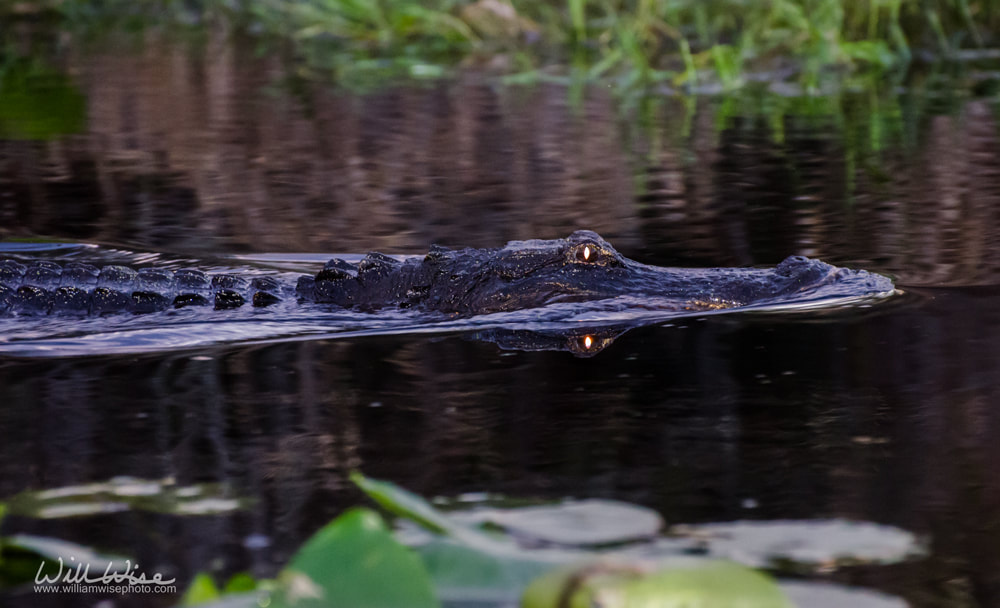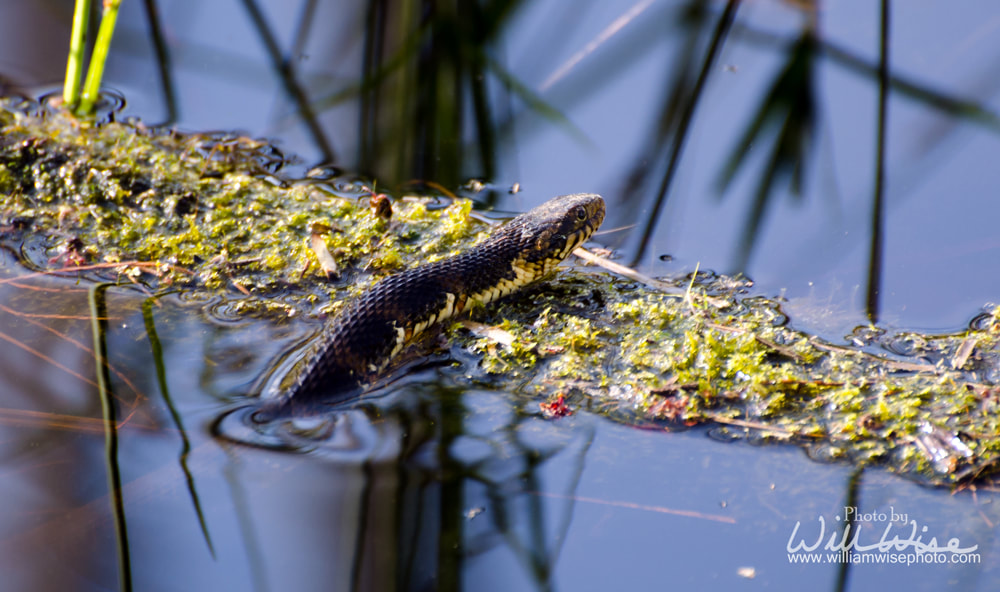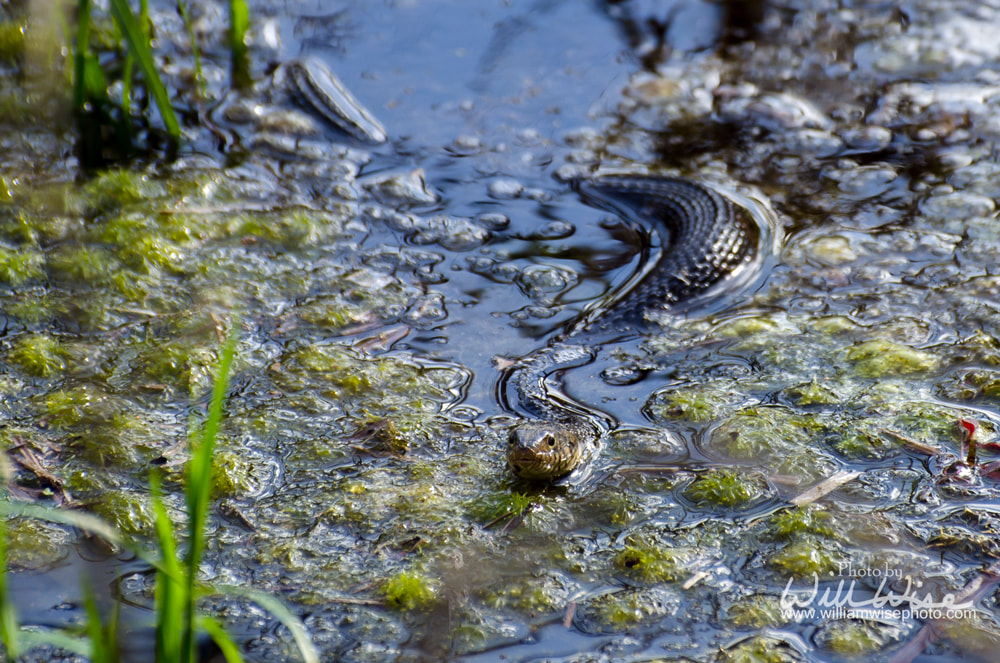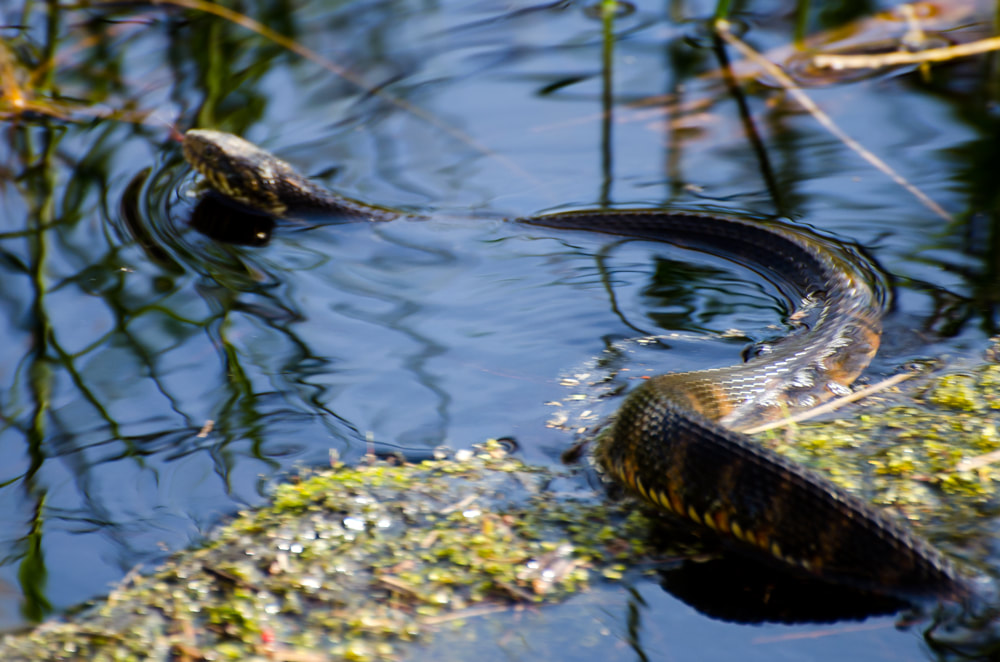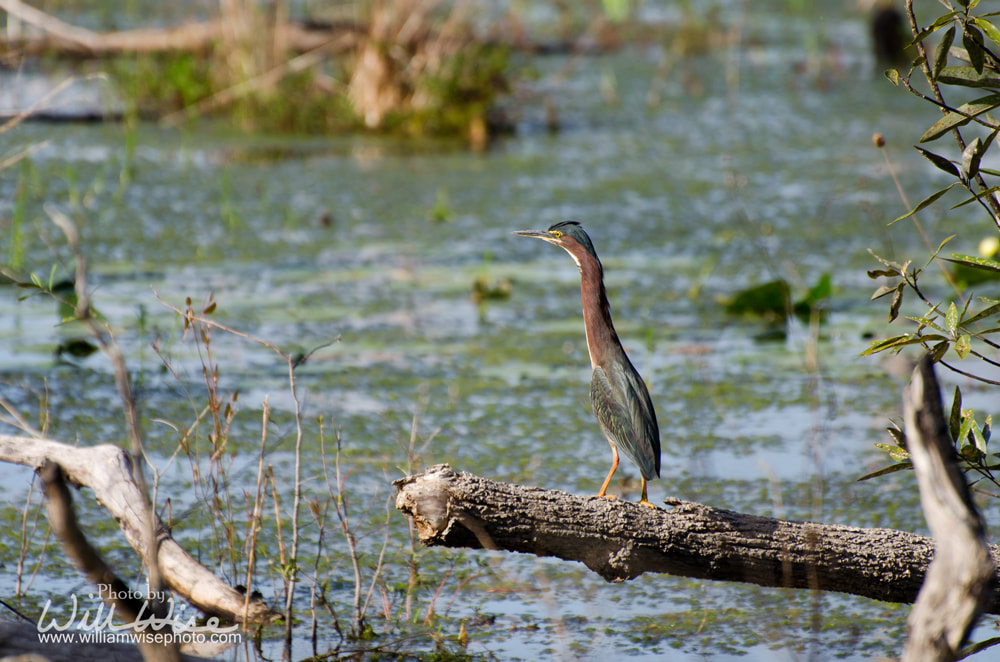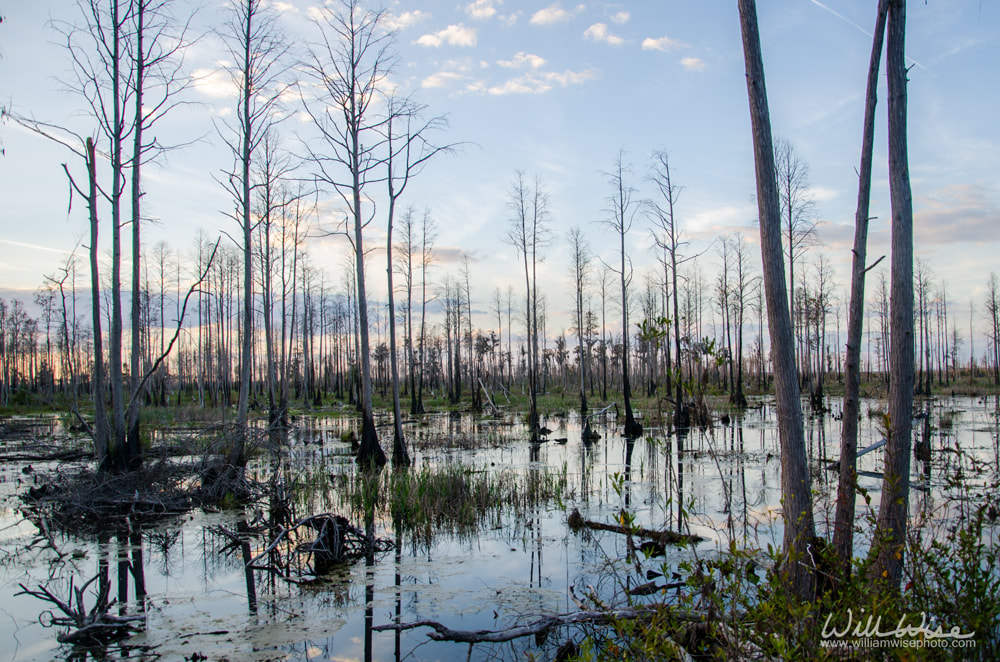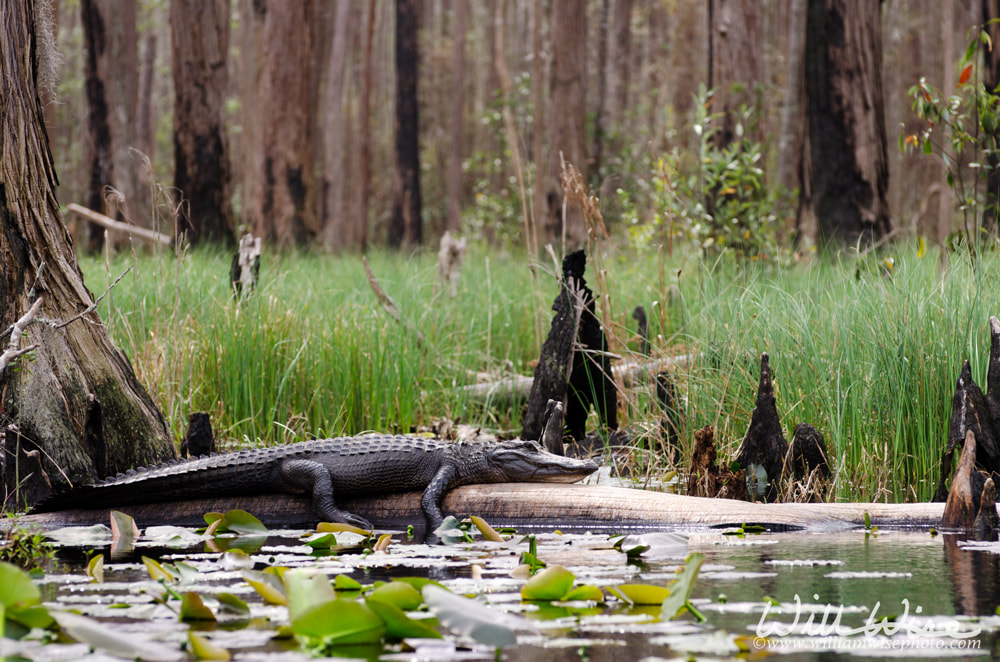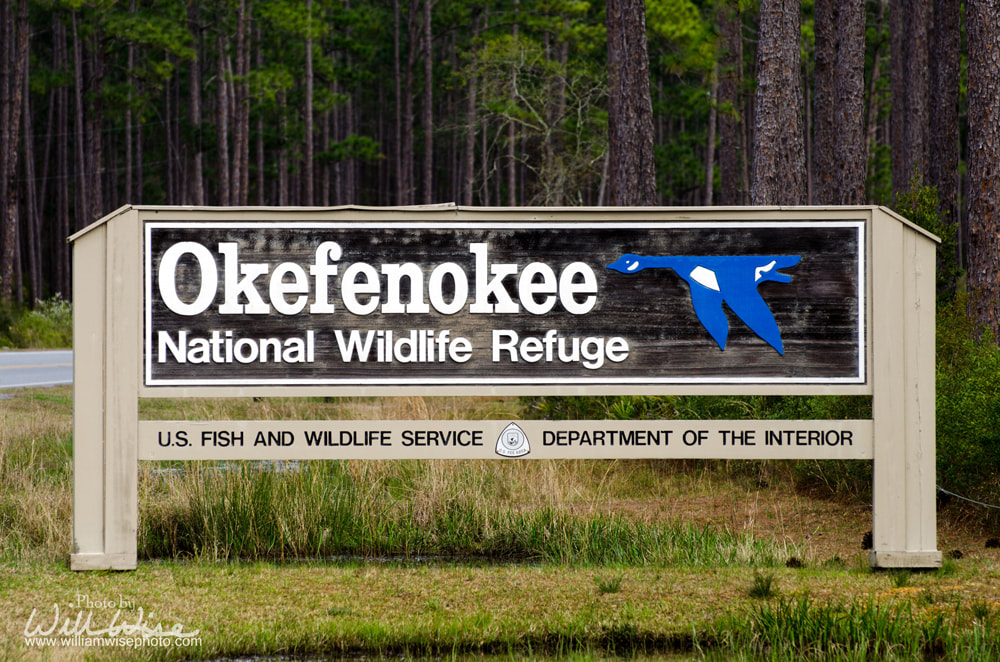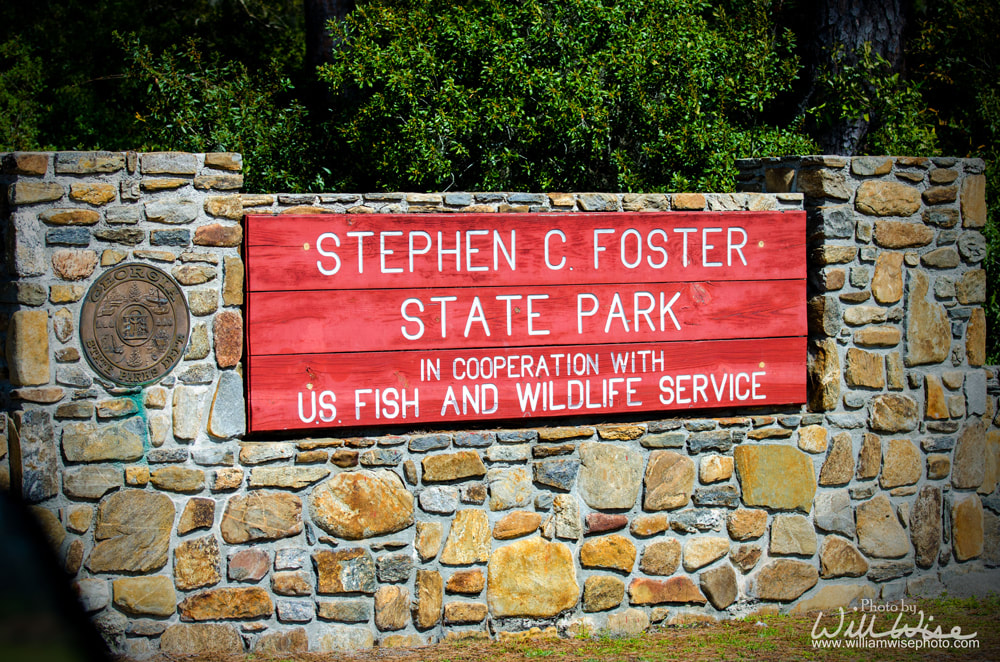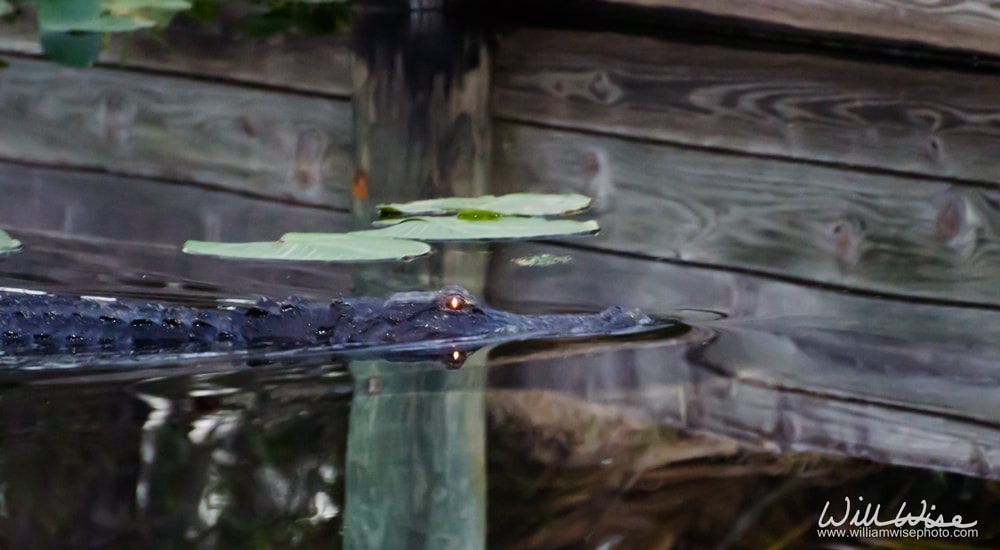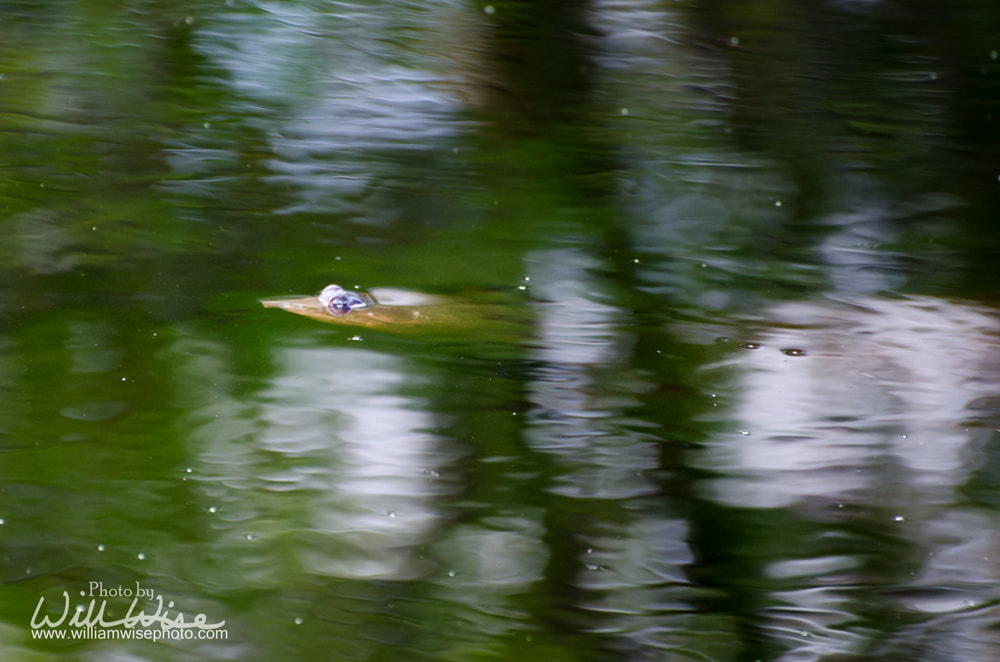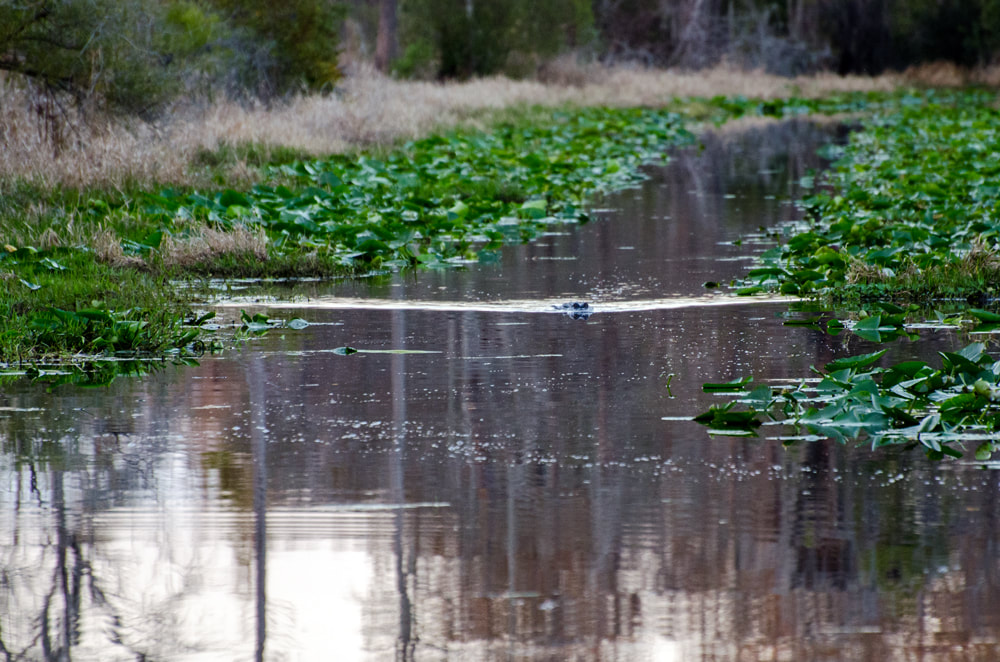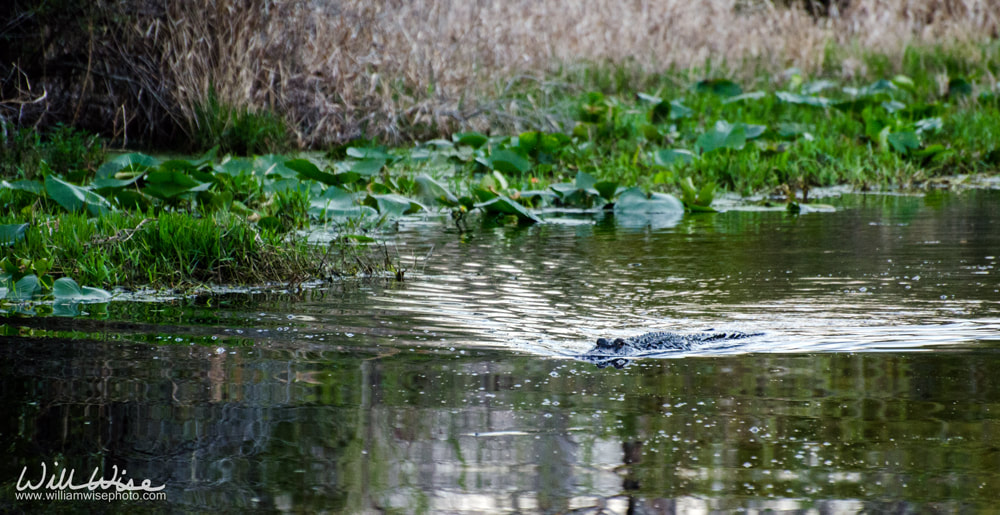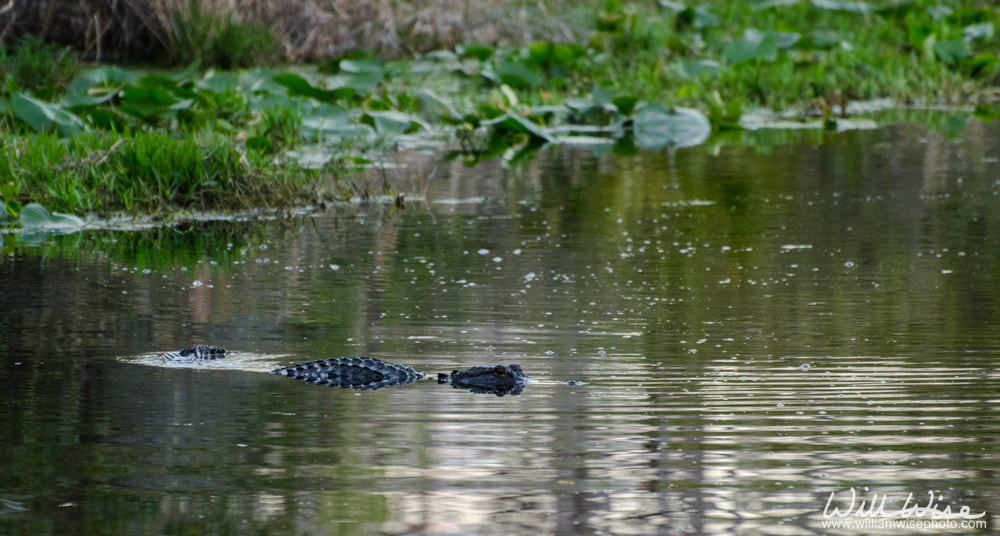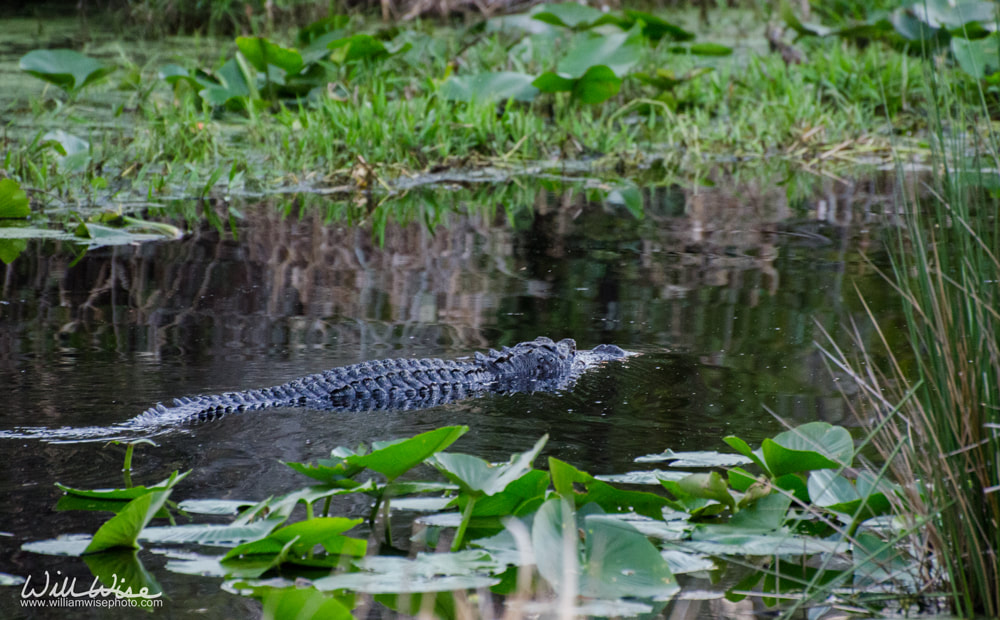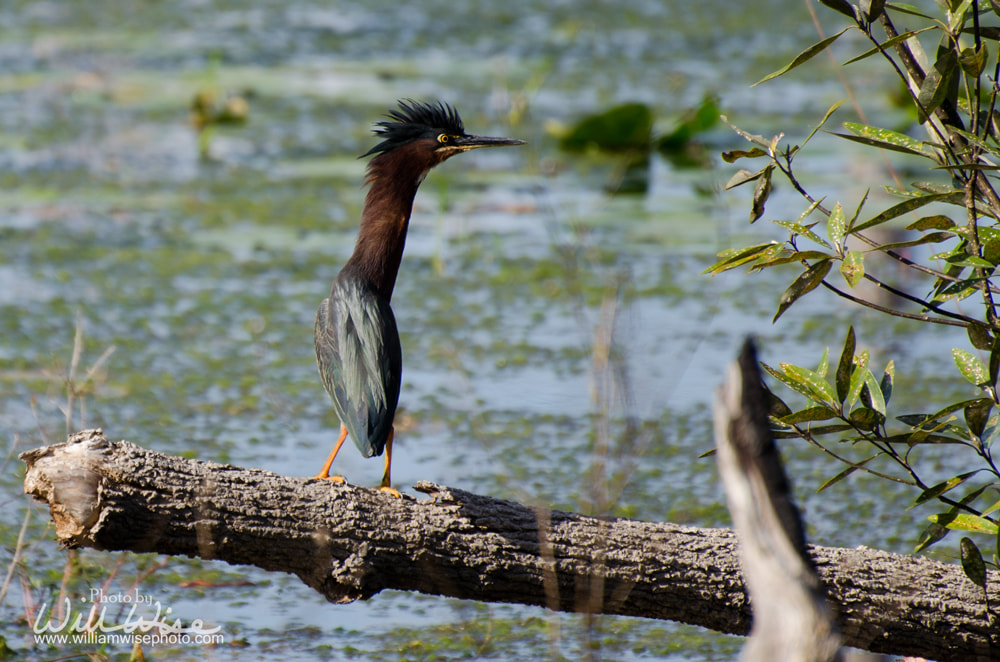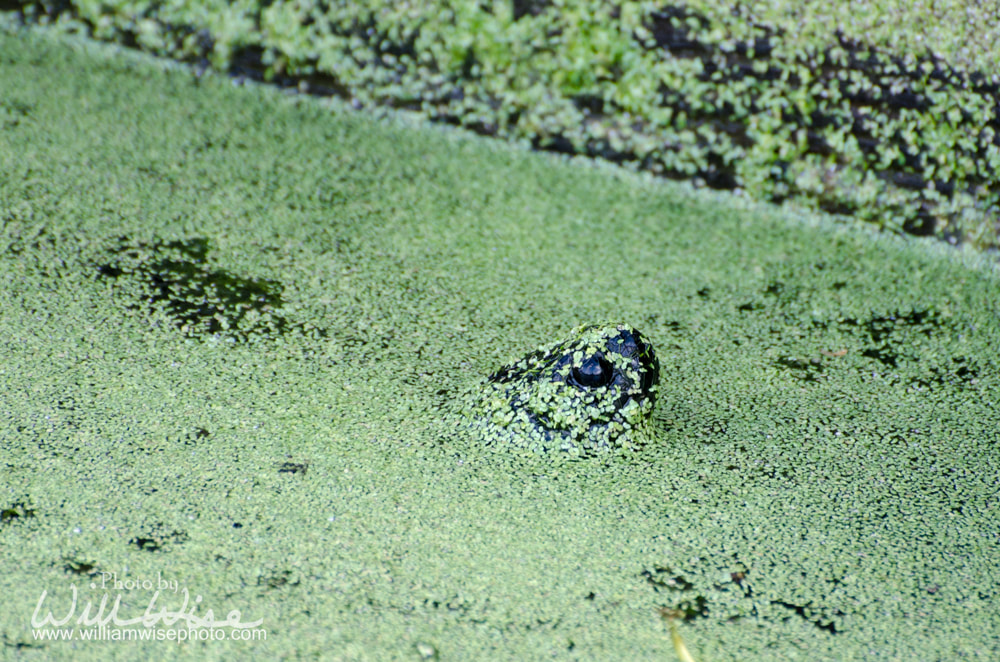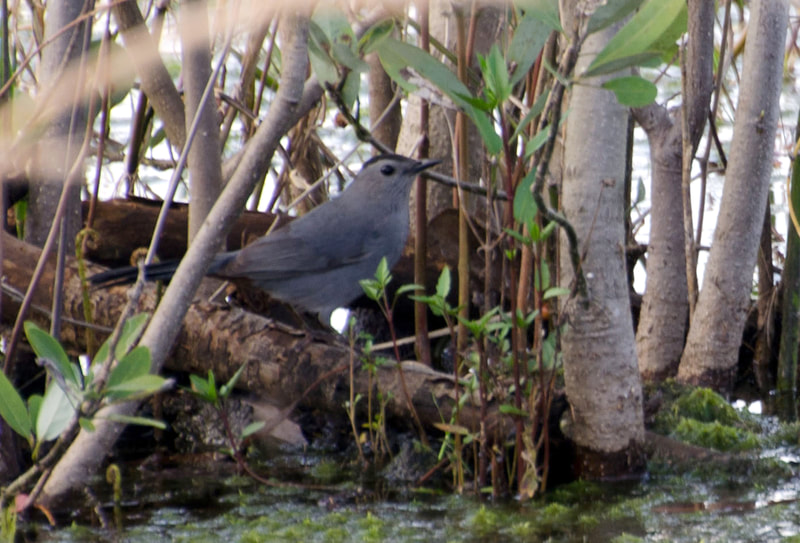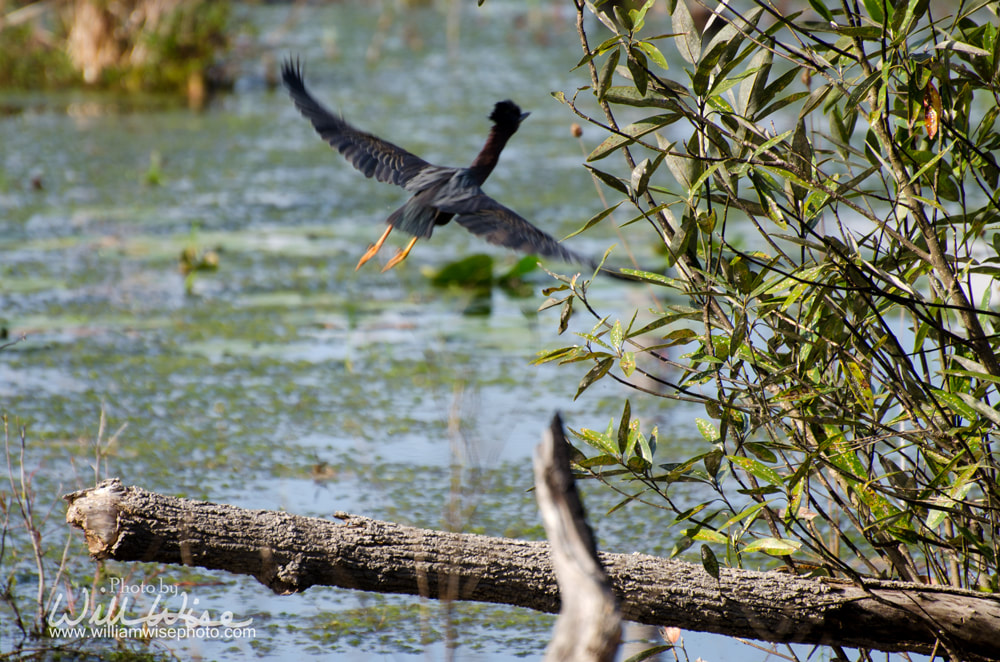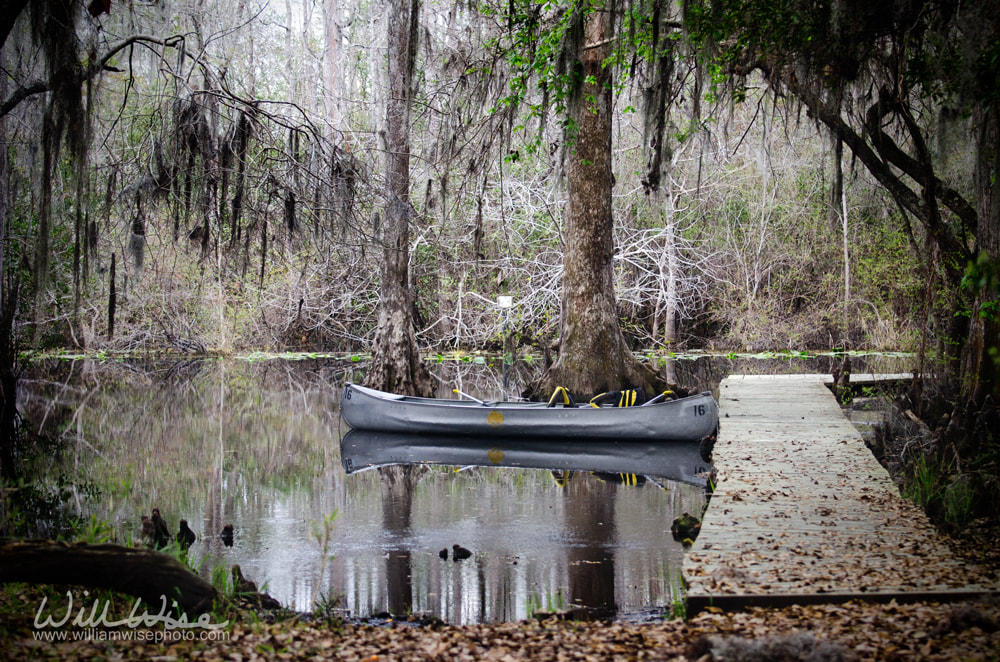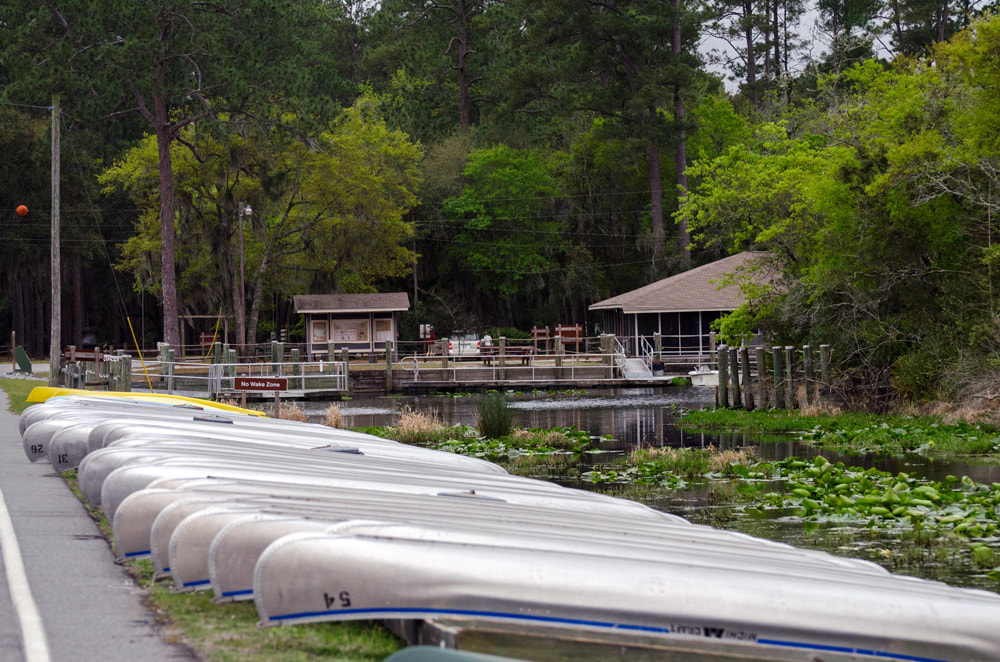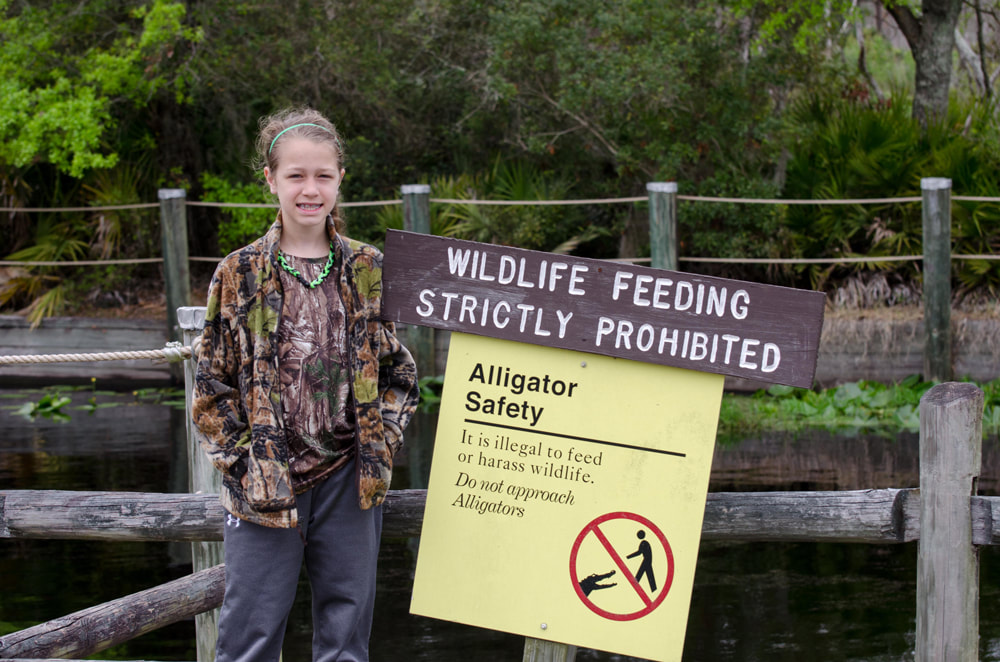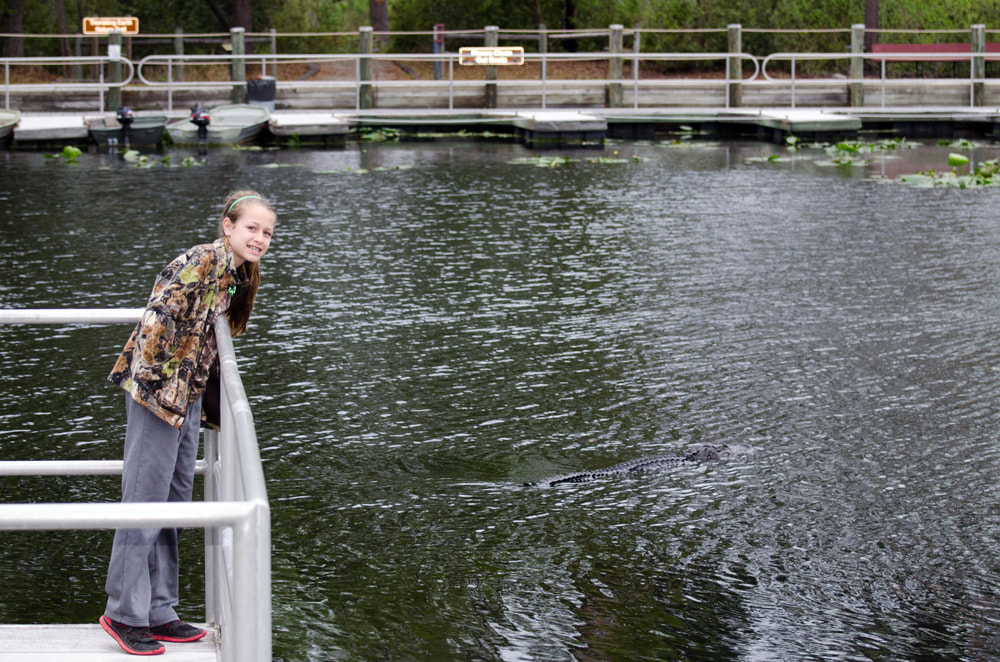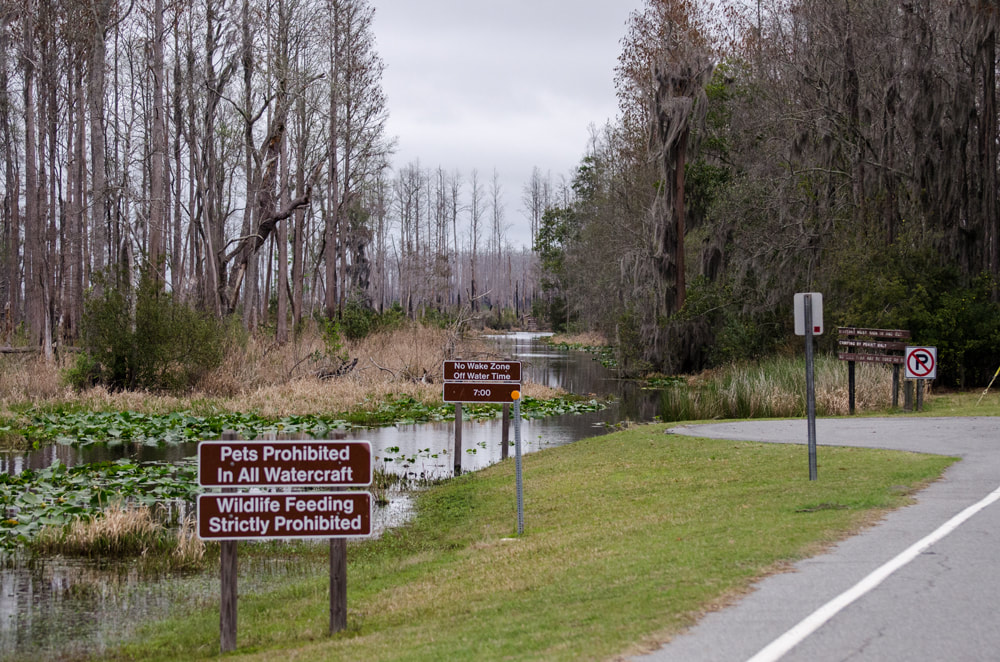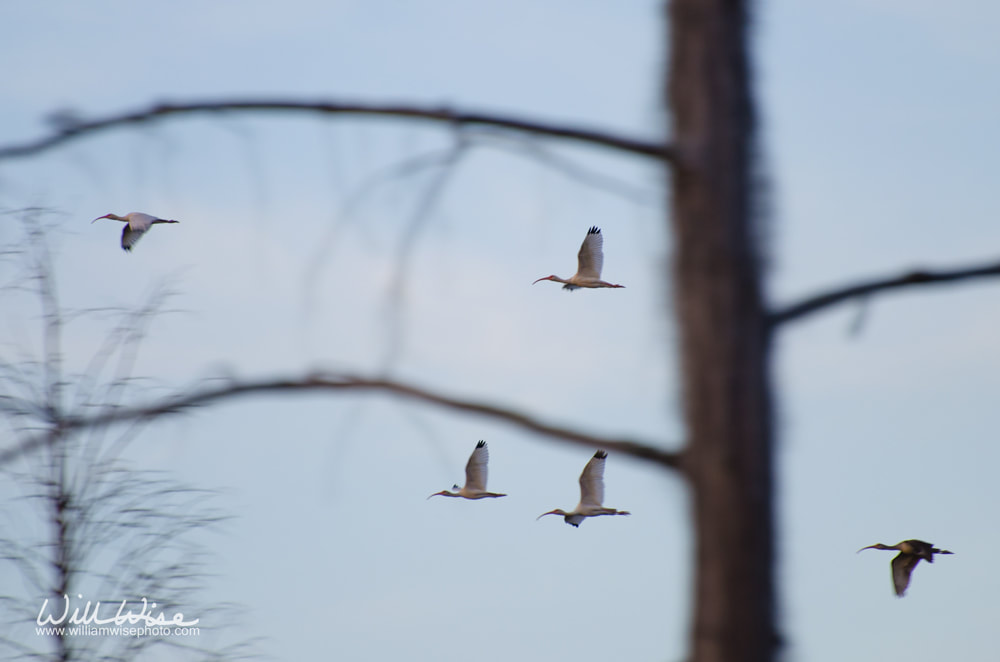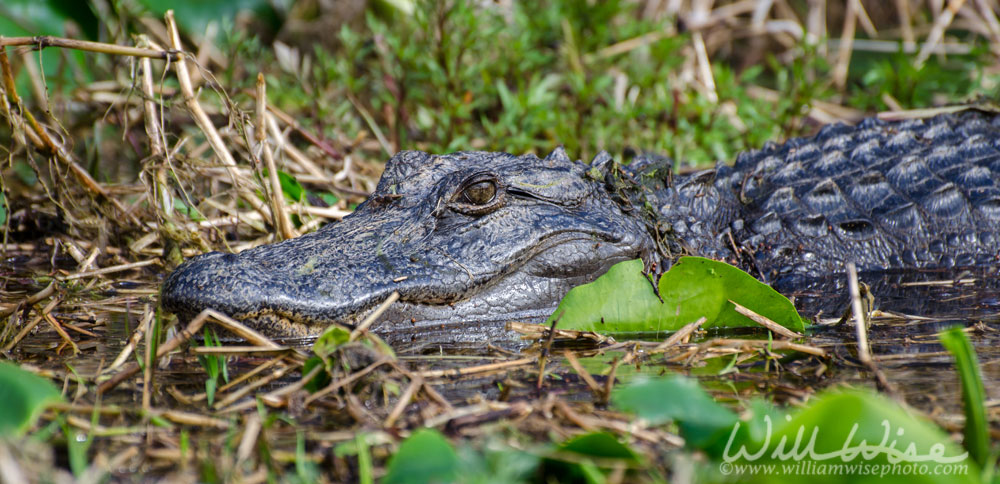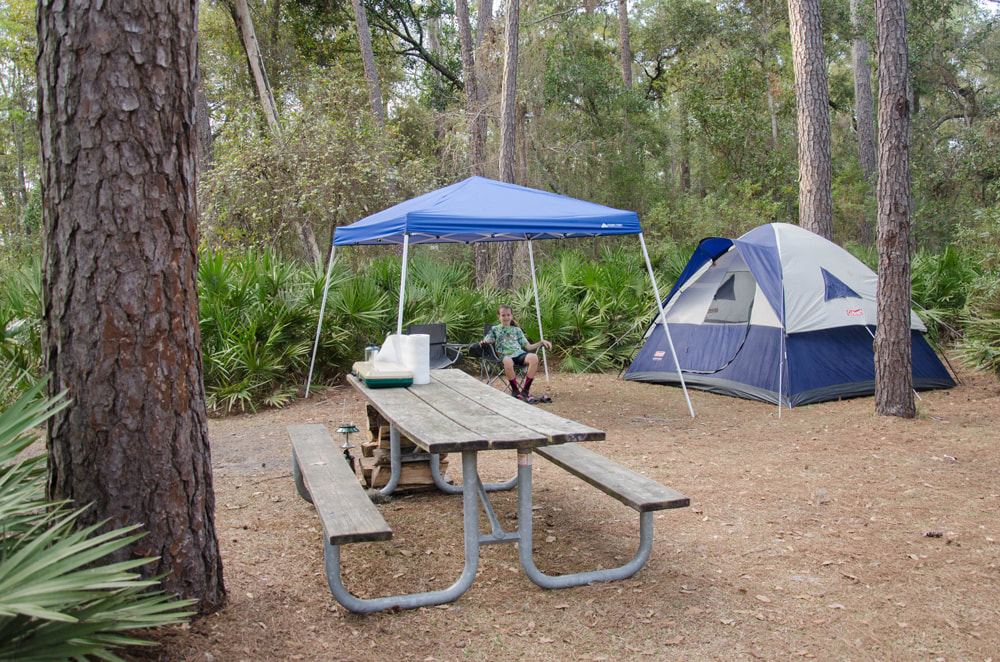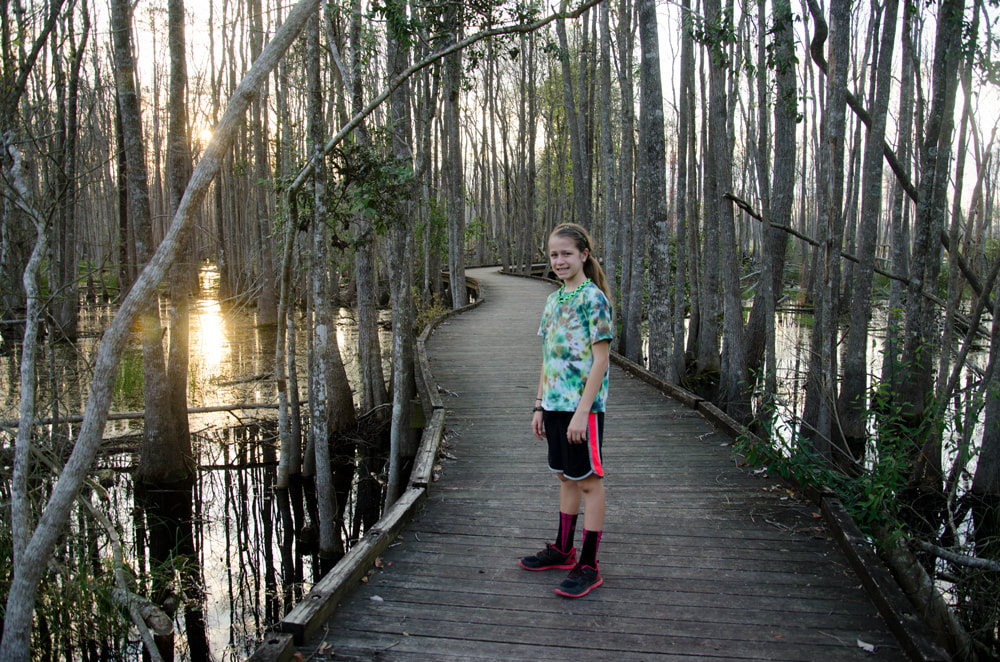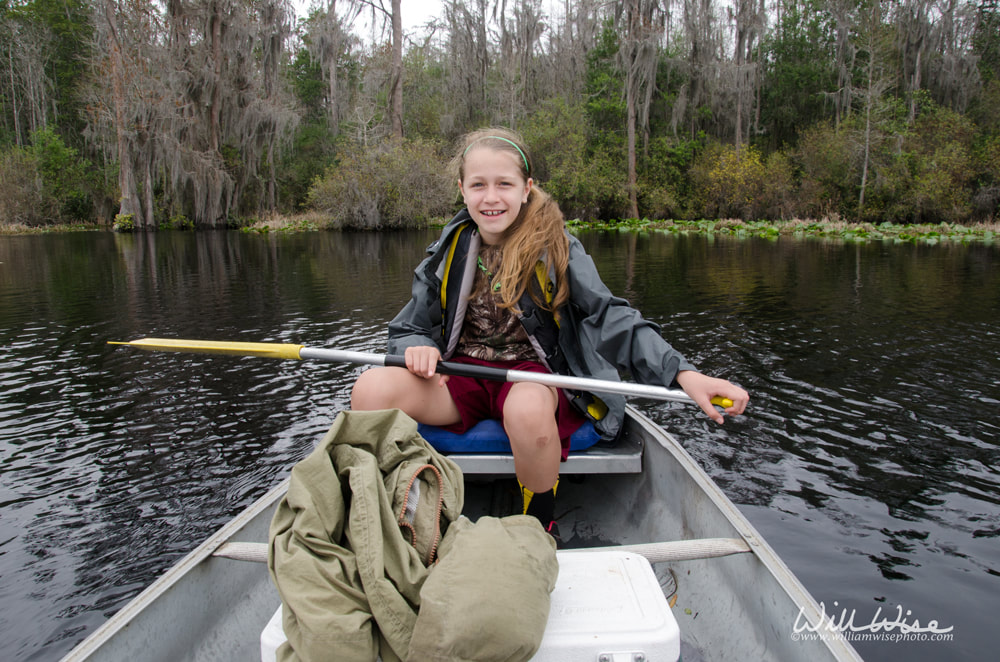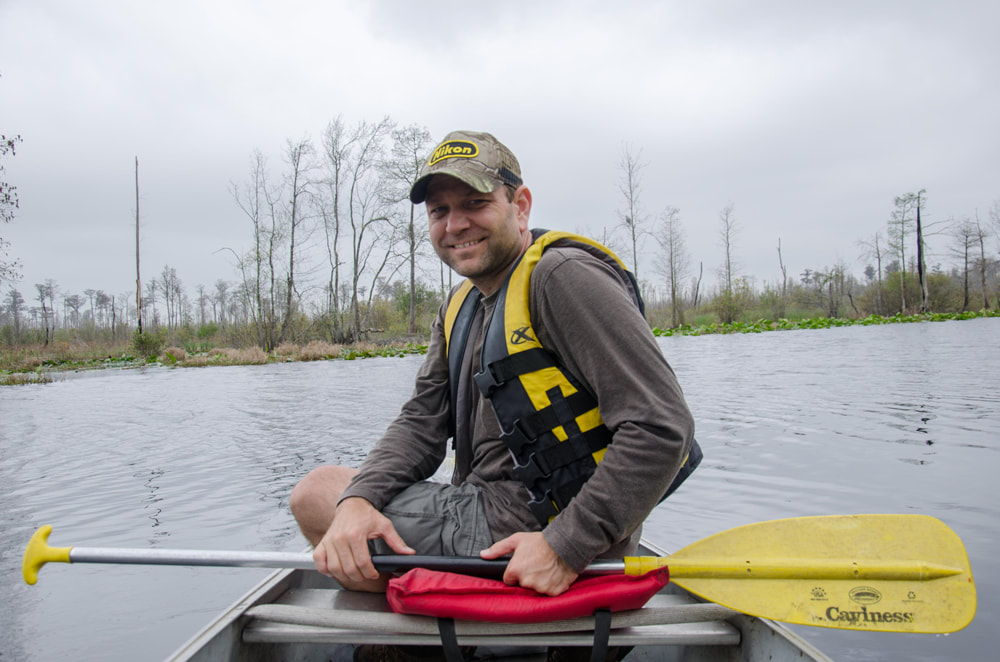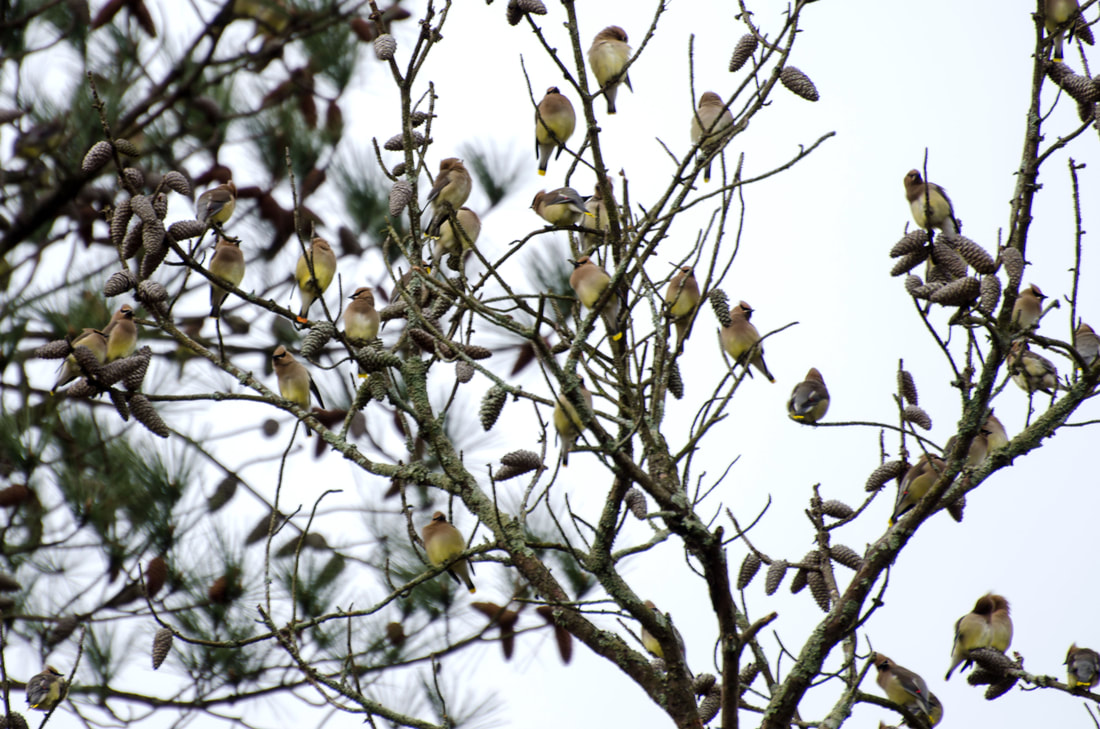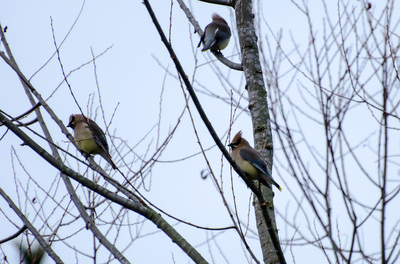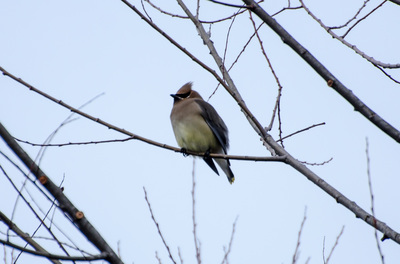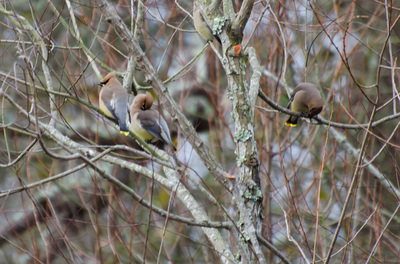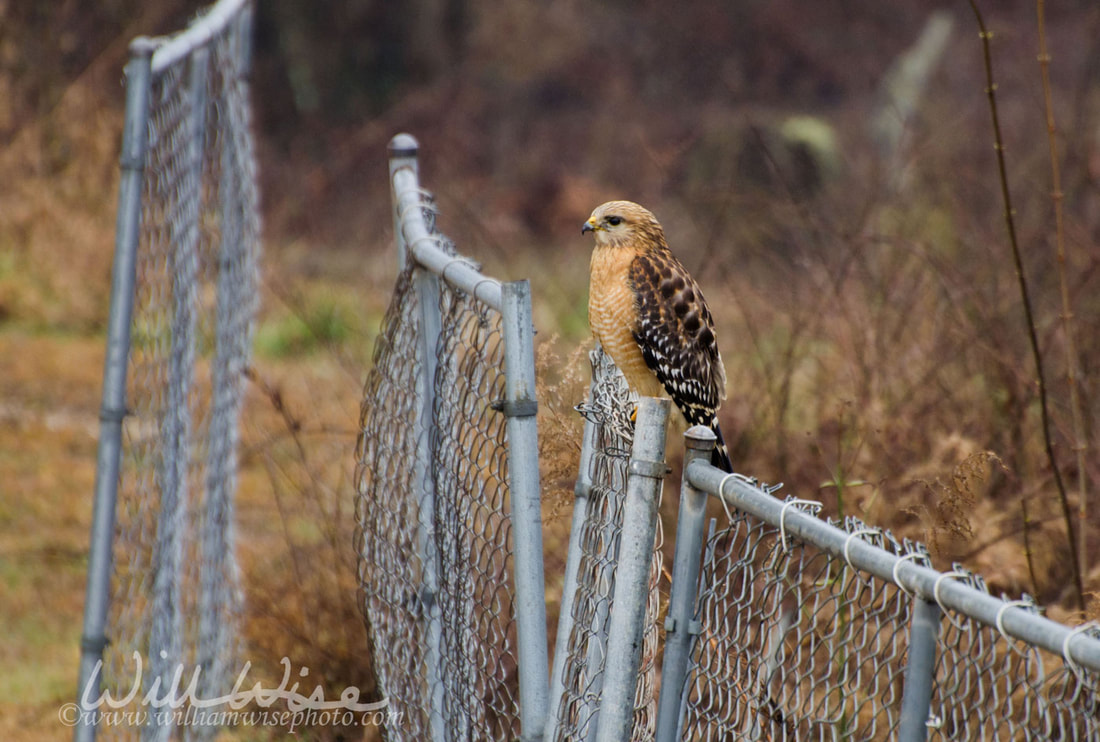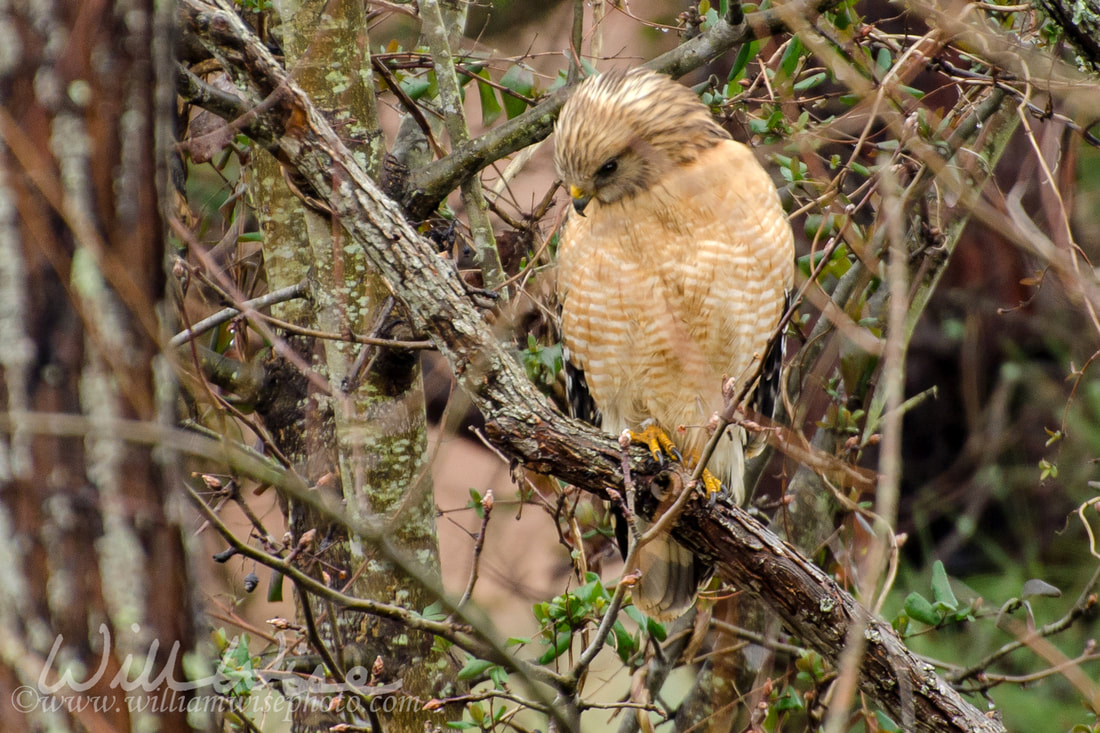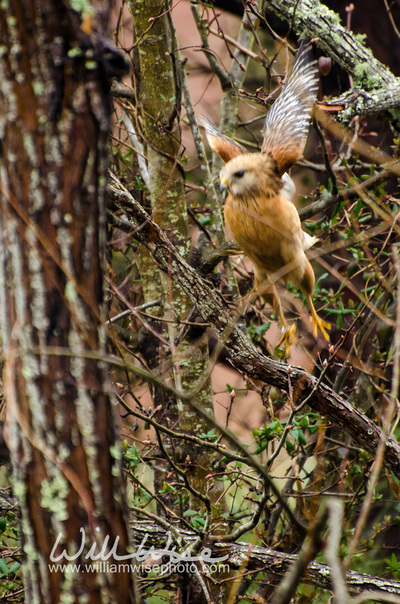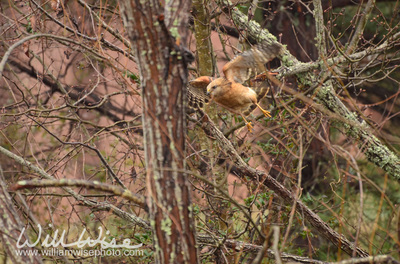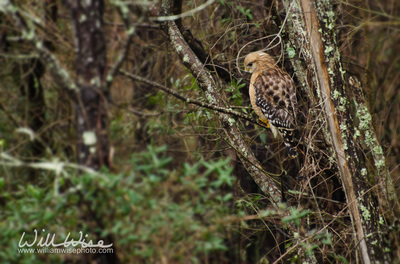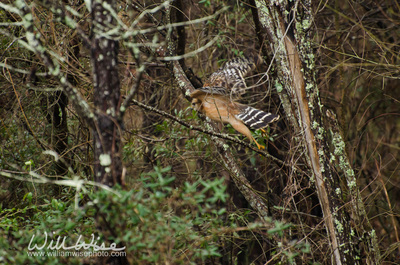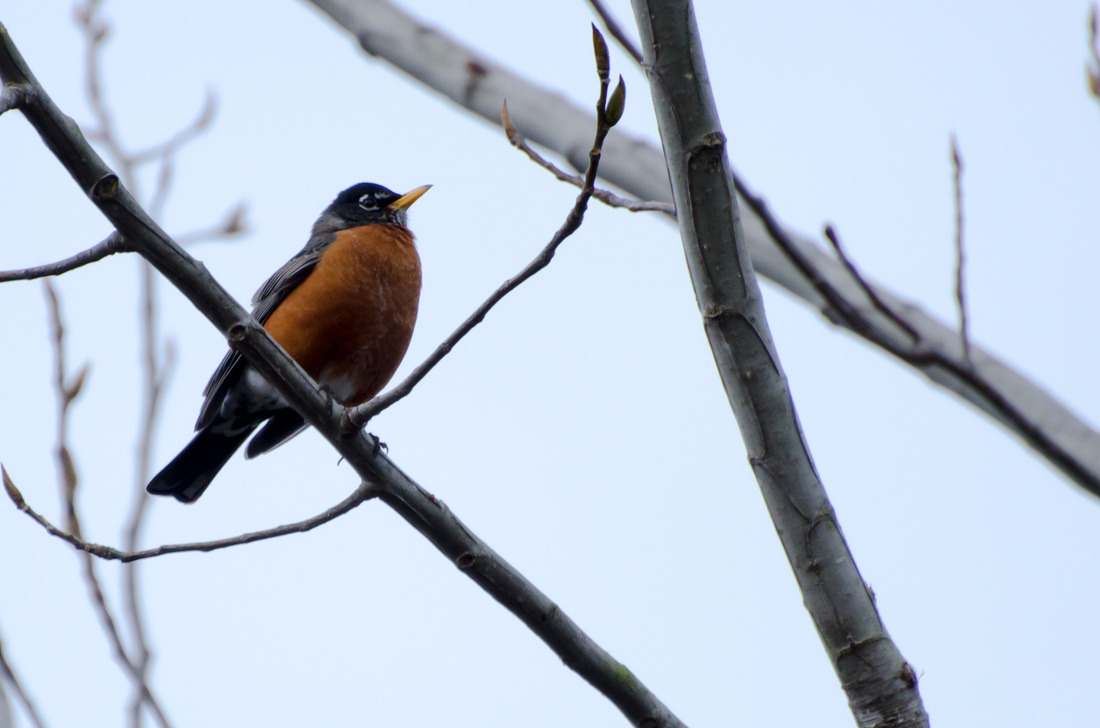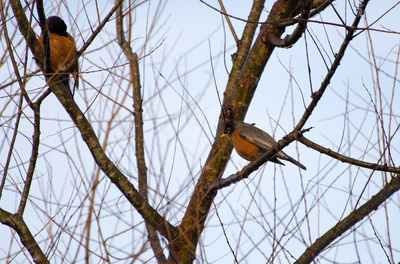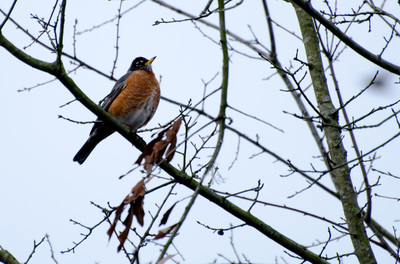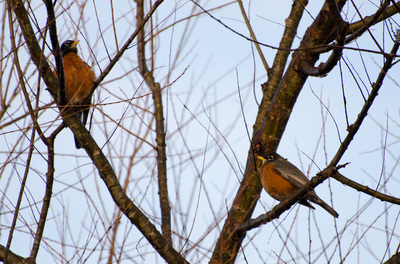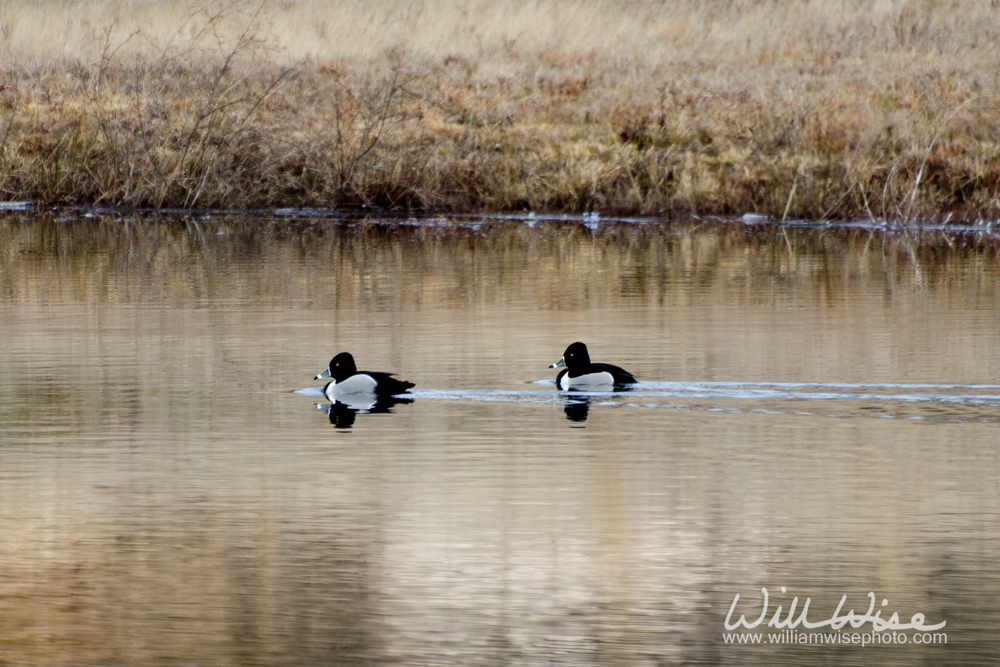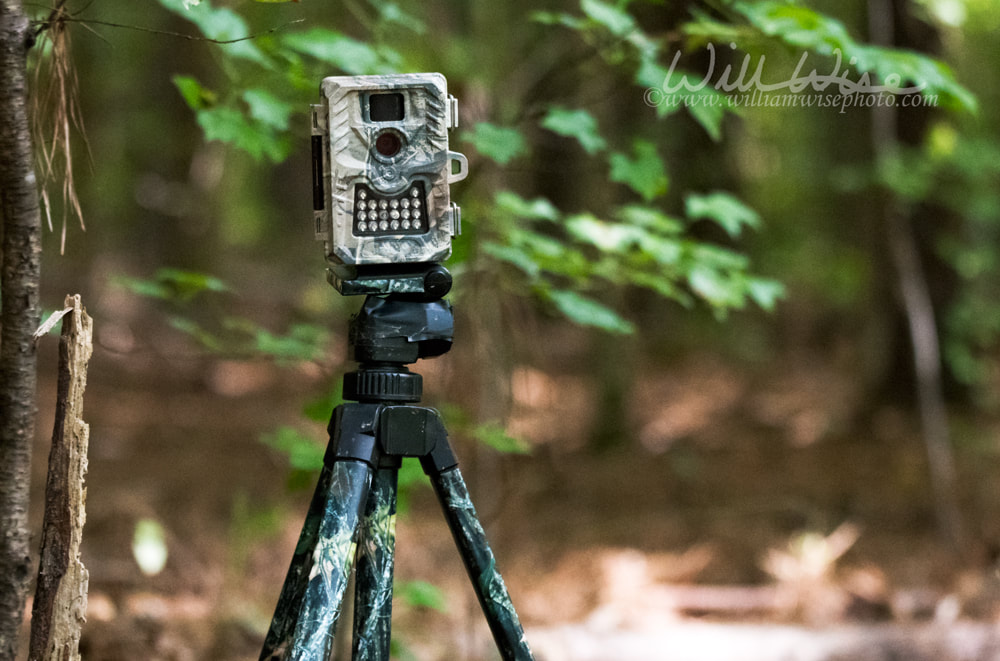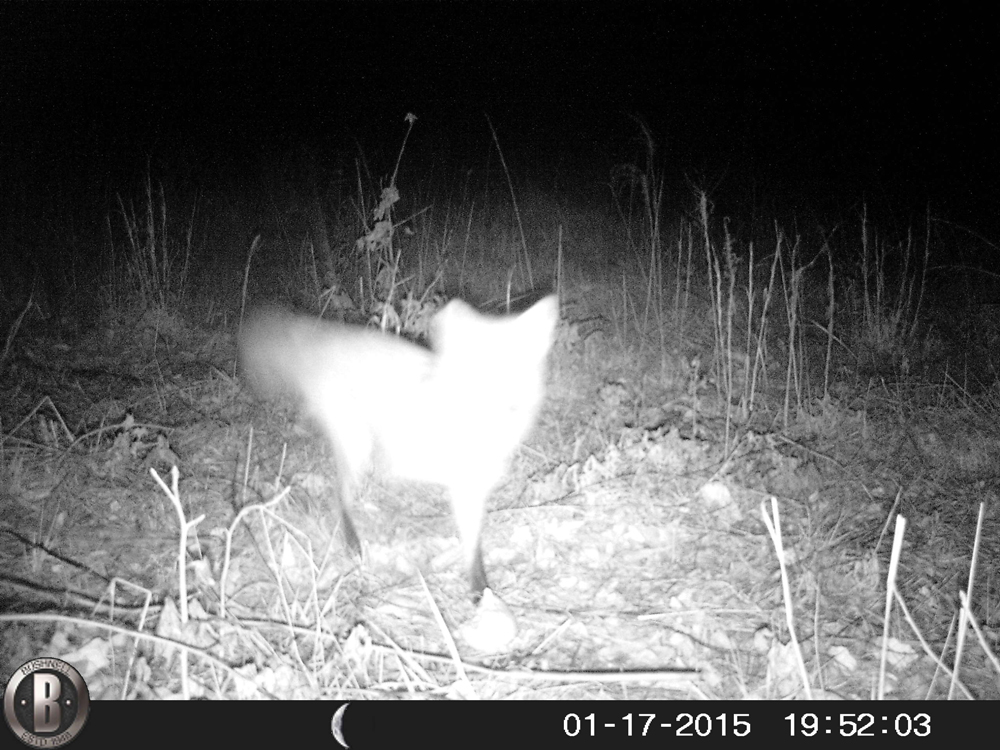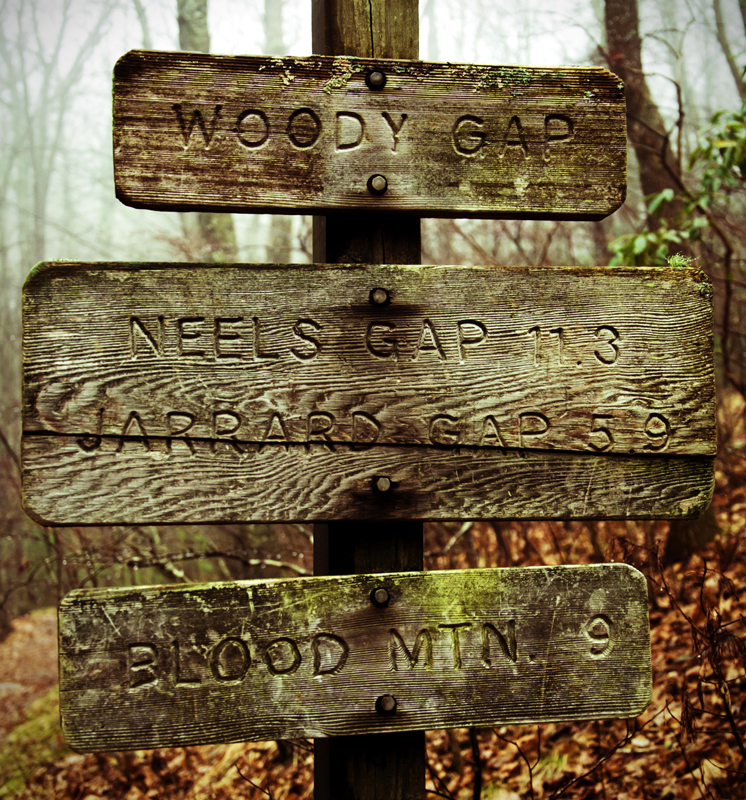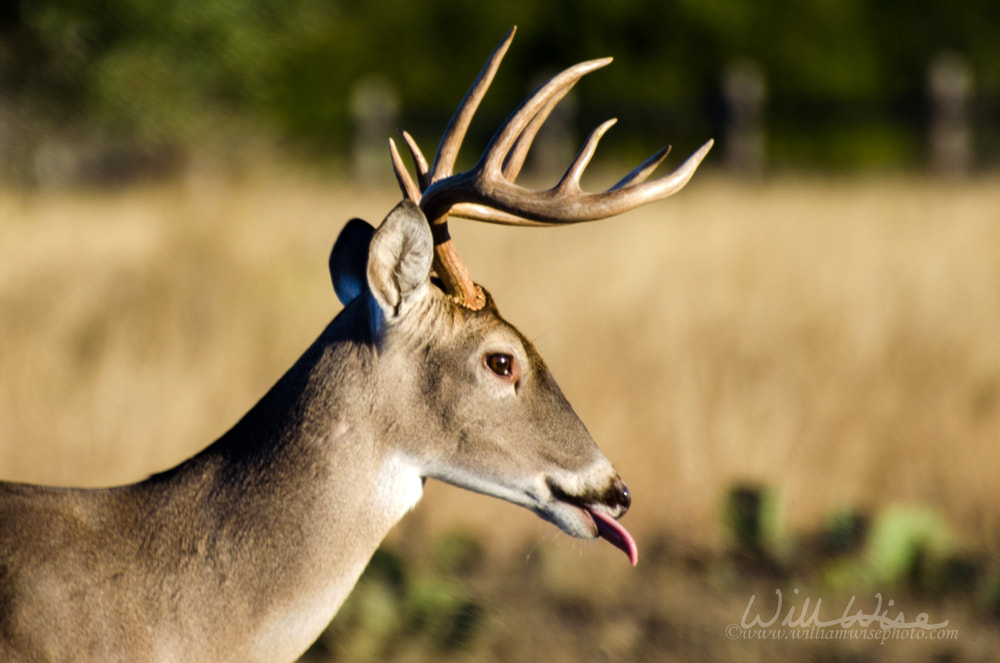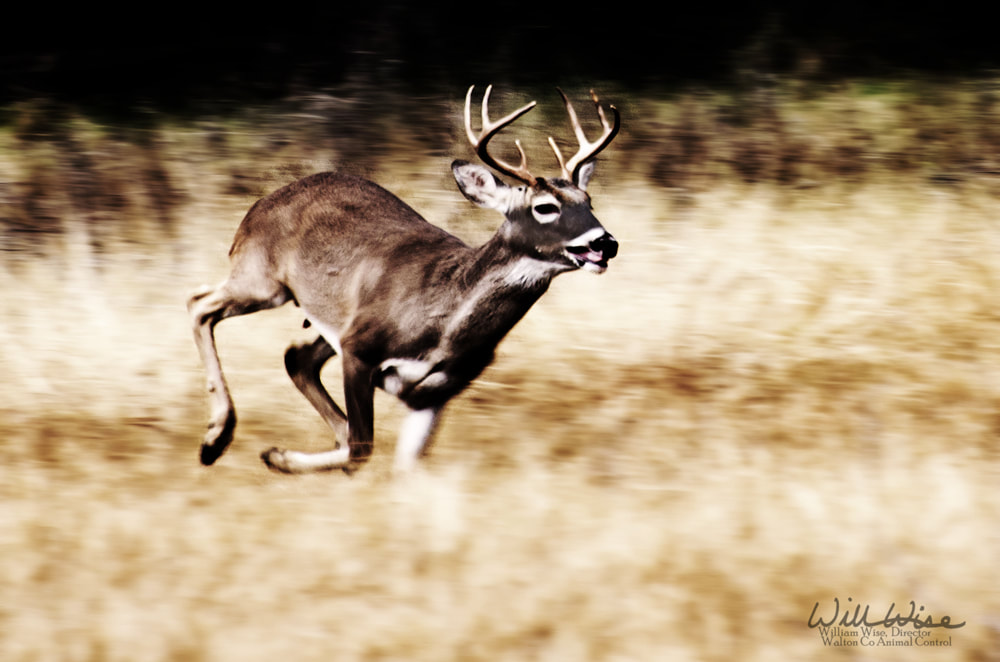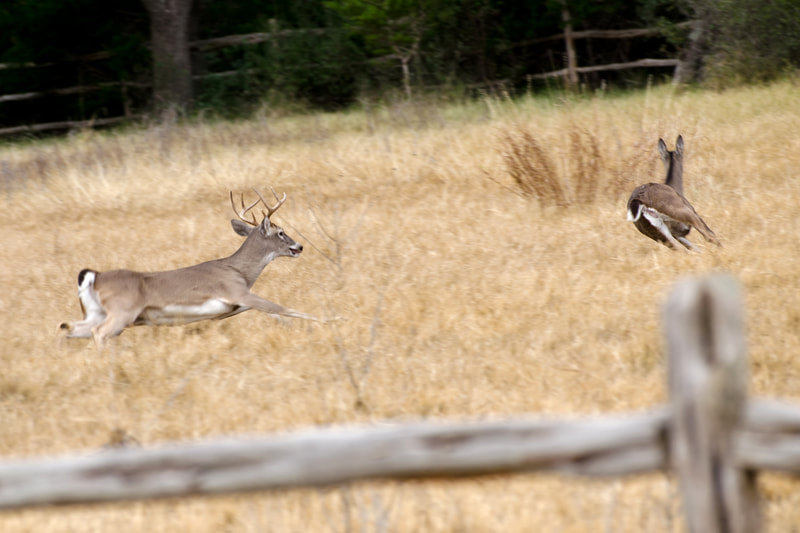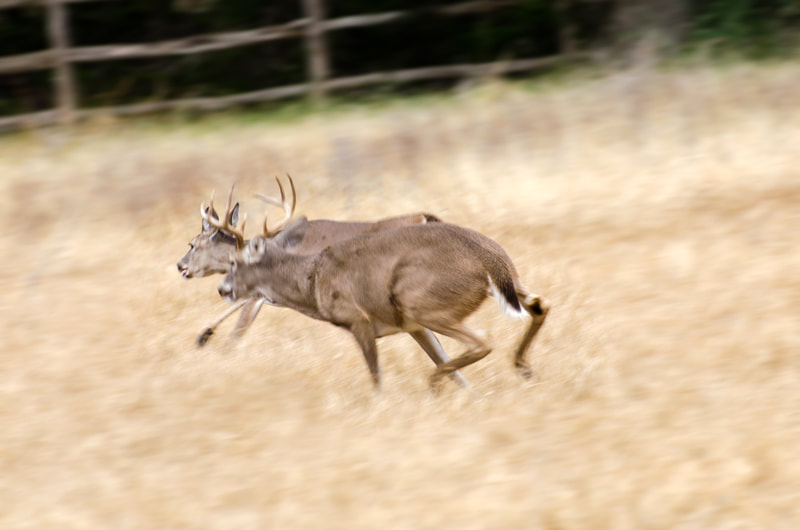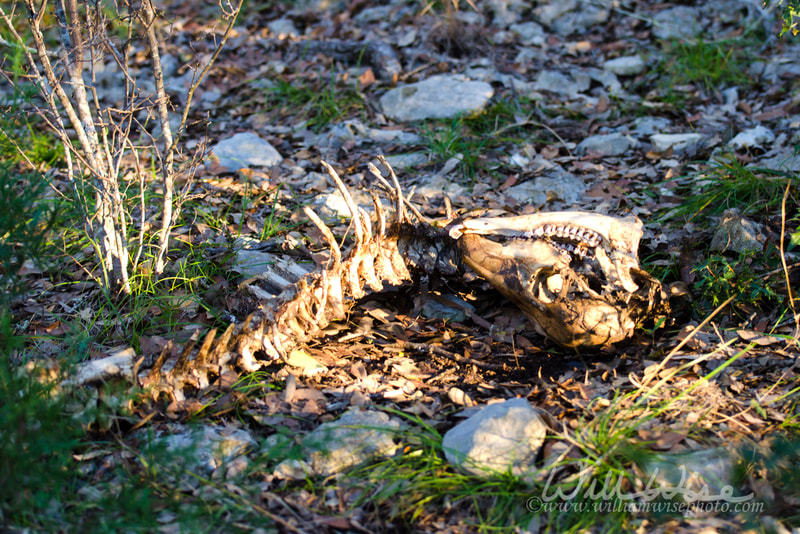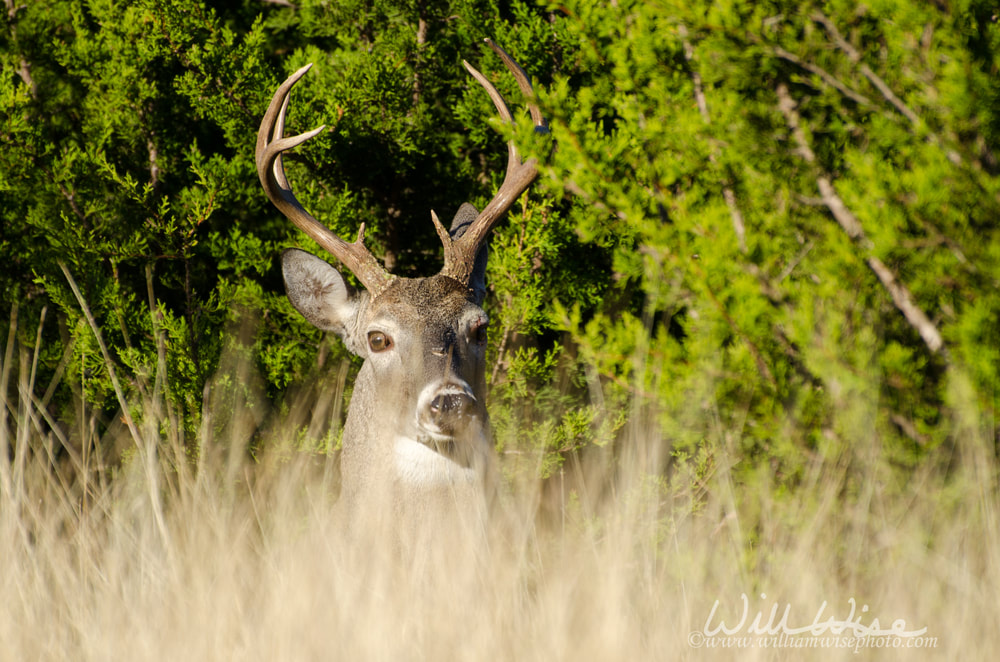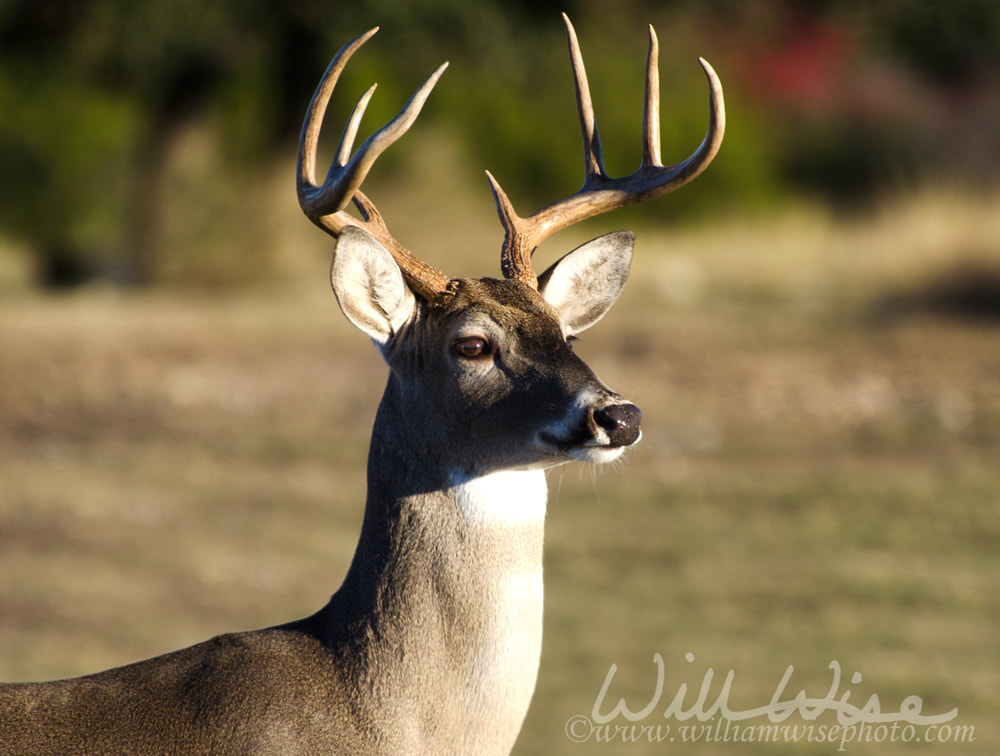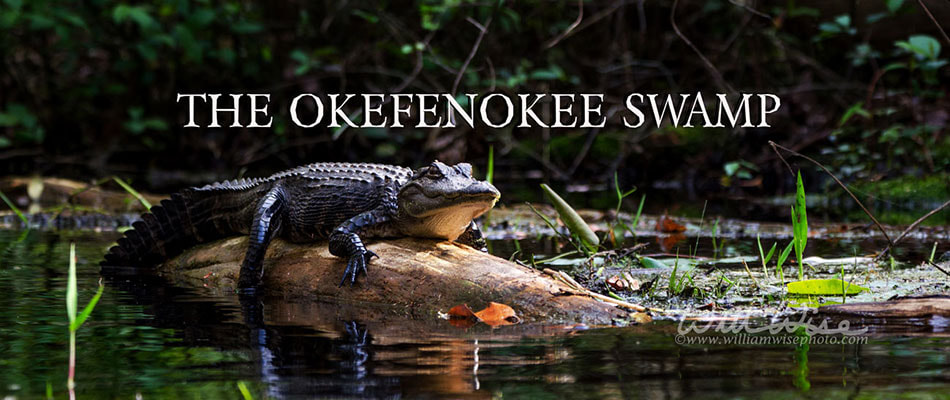 Okefenokee Photography by William Wise. A nature photo journal exploration of Georgia's Okefenokee Swamp, the Land of Trembling Earth, one of the largest blackwater swamps in North America. The alligators, birds, snakes and wildlife of Okefenokee National Wildlife Refuge and Stephen C Foster State Park. -- "What a wildly wonderful world, God! You made it all, with Wisdom at Your side, made earth overflow with your wonderful creations." Psalms 104 The Message Excerpt from the 1926 book History of the Okefenokee, by Hamp Mizell and AS McQueen:
“Alligator hunting affords excellent sport, and requires considerable courage, for it is no laughing matter to haul a wounded alligator into a boat on a dark night. They can – and do – become nasty customers at times and are capable of inflicting serious wounds, either with their long teeth or with their tails. A large alligator can very nearly kill a man with a vicious swipe of the tail.”
0 Comments
 Okefenokee Photography by William Wise. A nature photo journal exploration of Georgia's Okefenokee Swamp, the Land of Trembling Earth, one of the largest blackwater swamps in North America. The alligators, birds, snakes and wildlife of Okefenokee National Wildlife Refuge and Stephen C Foster State Park. -- "What a wildly wonderful world, God! You made it all, with Wisdom at Your side, made earth overflow with your wonderful creations." Psalms 104 The Message The most noticeable, or, I should say, most unavoidable sight on the Trembling Earth Nature Trail was the gnats; great clouds of gnats six feet in diameter, swarming at eye-level on the boardwalk. We pass through one cloud - swatting and waving our hands with eyes squinted and mouth shut tight - only to encounter another gnat cloud a few feet further down the boardwalk. Swatting did absolutely nothing; like trying to blow a path through thick fog with your mouth.
With my eyes squinted and facing down, I happen to notice a quick movement below the boardwalk and a stirring of the tannin-stained blackwater swamp. “A snake!” my daughter shouts. She is somehow always the first to spot the serpents on our wildness hikes. Sure enough, down in the sphagnum moss slithered a Southern Banded Watersnake, Nerodia fasciata. One cool reptile was now off our checklist. But where were the alligators?  Okefenokee Photography by William Wise. A nature photo journal exploration of Georgia's Okefenokee Swamp, the Land of Trembling Earth, one of the largest blackwater swamps in North America. The alligators, birds, snakes and wildlife of Okefenokee National Wildlife Refuge and Stephen C Foster State Park. -- "What a wildly wonderful world, God! You made it all, with Wisdom at Your side, made earth overflow with your wonderful creations." Psalms 104 The Message As with most wildlife photography, success can be hit-or-miss. After many forays into the Okefenokee National Wildlife Refuge, a 400,000+ acre swamp located in south Georgia, there are days I fill SD cards to capacity, and days where I wish there was more to see than empty branches on tall trees. But never “write off” a particular area. Just because no wildlife was seen during one visit, doesn’t mean you won’t be surprised on another.
I have walked the short boardwalk within the Okefenokee’s Stephen C Foster campground dozens upon dozens of times. I can walk the distance to the dead end and find nothing. But upon turning around just a few minutes later find a colorful Green Heron that had been skulking down in some scrub on my first pass, only to be flushed out for a photography by the returning sound of my footsteps. Take it slowly on your hikes and paddles. Even if you don’t photography many animals, landscape opportunities abound. Take in the sun and fresh air; feel the texture of the cypress bark and leaves; breathe in the aromas of wildflowers; search the shadows for fiddleheads and mushrooms. Never be reluctant to make a second trip. You may see something now, when before you didn’t!  Okefenokee Photography by William Wise. A nature photo journal exploration of Georgia's Okefenokee Swamp, the Land of Trembling Earth, one of the largest blackwater swamps in North America. The alligators, birds, snakes and wildlife of Okefenokee National Wildlife Refuge and Stephen C Foster State Park. -- "What a wildly wonderful world, God! You made it all, with Wisdom at Your side, made earth overflow with your wonderful creations." Psalms 104 The Message An excerpt from Francis Harper's 1913 paper "A Biological Reconnaissance of the Okefinokee Swamp", published in The Auk, the official publication of the American Ornithological Society:
 Okefenokee Photography by William Wise. A nature photo journal exploration of Georgia's Okefenokee Swamp, the Land of Trembling Earth, one of the largest blackwater swamps in North America. The alligators, birds, snakes and wildlife of Okefenokee National Wildlife Refuge and Stephen C Foster State Park. -- "What a wildly wonderful world, God! You made it all, with Wisdom at Your side, made earth overflow with your wonderful creations." Psalms 104 The Message After miles of seemingly endless, boring driving through pine flat-woods, one hopes for a sign from heaven that the swamp is nearing. And that first “sign” is literally a large, wooden sign marking the entrance to the refuge! The Okefenokee National Wildlife Refuge was established in 1937 as a “refuge and breeding ground for migratory birds and other wildlife”. The Swamp survived an attempt at draining in the late 1800’s and was logged extensively in the early 1900’s before becoming a refuge in 1937 by declaration of Franklin D. Roosevelt. It encompasses 401,880 acres (628 square miles), roughly 35 miles north to south and 25 miles east to west.
 Okefenokee Photography by William Wise. A nature photo journal exploration of Georgia's Okefenokee Swamp, the Land of Trembling Earth, one of the largest blackwater swamps in North America. The alligators, birds, snakes and wildlife of Okefenokee National Wildlife Refuge and Stephen C Foster State Park. -- "What a wildly wonderful world, God! You made it all, with Wisdom at Your side, made earth overflow with your wonderful creations." Psalms 104 The Message Tuesday, 6:29 PM - We failed to see any gators out on the swamp boardwalk, so before heading back to camp we decided to check the boat dock and canoe launch up the canal. Amanda called out, “GATOR!” as a ripple splashed in the middle of the boat bay. “It went under right there.” We watched and waited for a minute. When it resurfaced, our gator turned out to be a rather large soft-shelled turtle. Soft-shells aren’t the most attractive turtles. In fact, my nephew described one we encountered on a Disney Resort as, “the ugliest turtle I’ve ever seen!” Their slender, long heads look like old fashioned Coke bottles capped with an unattractive pig’s snout. Their shells are relatively flat like an oversized, gray, rubber pancake. A little bit further on, the water stirred and swelled just beyond the “Danger, Alligators Present” sign. Again we waited. After a minute we spotted a foot-long scaled creature just below the surface. But it wasn’t an alligator. We had been tricked again, this time by a Gar. Often, Gar resemble alligators (in fact, one subspecies is named an Alligator Gar). They possess long, scaly-armored bodies and long snouts filled with jagged teeth. An outdoors magazine once contained an article about a sportsman fishing for Gar with a crossbow that was pulled from his boat and dragged through the water after spearing an impressively large Gar. It was a neat fish to see, but not the alligator we were looking for. Twice tricked, but not giving up while there was still some light, we decided to walk further down the canal. Out towards the swamp we spotted a dark object in the lane between the lily pads. By the v-shaped ripples breaking in front, we could see it was travelling rather quickly in our direction. Finally, a gator, and heading our way! I began snapping photos even though it was low light. It swam all the way in and circled the boat bay; quite comfortable in close association with the visitor’s office. As the sky darkened, I tried some low-light manual camera settings. Using the flash brought out some beautiful red-eyed gator shots that turned out to be my favorite photos from the entire week. We later learned from the park staff that this was Sophie, the “resident gator.” She frequented the boat bay and had babies along the bank opposite the rental canoes. Each morning and evening for the rest of our trip we stopped to say hello to Sophie. She calmly patrolled the boat bay in the evenings and occupied a small opening or harbor in the lily pads during the day. Just behind her daytime resting spot was a ramp of loose dirt up the bank; no doubt a convenient ascent to her nesting site. Our final morning of the trip, we were finally able to catch a glimpse of one of Sophie’s babies crawling out of the duck weed.
 Okefenokee Photography by William Wise. A nature photo journal exploration of Georgia's Okefenokee Swamp, the Land of Trembling Earth, one of the largest blackwater swamps in North America. The alligators, birds, snakes and wildlife of Okefenokee National Wildlife Refuge and Stephen C Foster State Park. -- "What a wildly wonderful world, God! You made it all, with Wisdom at Your side, made earth overflow with your wonderful creations." Psalms 104 The Message Tuesday, 4:13 PM - After pitching camp in the Stephen C Foster State Park campground, the game with my daughter was to see who would spot our first alligator. So we headed down the Trembling Earth Nature Trail and onto the boardwalk that heads into the swamp. On our way, two woodpeckers chased each other, spiraling around and through the trees; a doe and fawn casually fed on the grass near the cabins, and a Green Anole darted across our path. Being primarily hikers, I was a bit disappointed to find only a short, 2-mile hiking trail. But it isn’t any fault of the park services, seeing as the majority of the refuge is under water! The trail gets its name from the English translation of the Indian word Okefenokee. The wide, ADA portion of the trail loops on solid, dry ground and is lined on either side with palmettos, downed wood and patches of standing water. A few tall pines and snags stand within the loop. Other than Catbirds and other small, flitting birds, we didn’t encounter any wildlife on that first portion of the trail. Near the back of the loop, a spur of the boardwalk heads 2,000 feet out into the standing water of the swamp. Underneath lies 2 to 3 feet of dark tinted water, but very clear to the bottom, revealing submerged debris, logs, grasses and vegetation. As we neared the mid-point of the boardwalk, a Green Heron burst aloft between the bushes on my left and stopped on a limb to check out the intruders. An agitated rooster-like crown covered his head but then smoothed back as he settled on a perch; beautiful, shimmering, iridescent shades of blue, green, and tan. To my daughter’s dismay (she was ready to see what lie up ahead), I stayed with the heron for at least ten minutes, following him from perch to perch, waiting for the opportune “Kodak moment.”
As we continued, we ran into a few catbirds and spotted some Egrets feeding off in the distance. Although we found and photographed two snakes along the boardwalk (Amanda first spotting both), we didn’t see any alligators. Though we didn’t voice it, we were both a tad disappointed when we reached the end of the boardwalk: how can it be a swamp without an alligator?  Okefenokee Photography by William Wise. A nature photo journal exploration of Georgia's Okefenokee Swamp, the Land of Trembling Earth, one of the largest blackwater swamps in North America. The alligators, birds, snakes and wildlife of Okefenokee National Wildlife Refuge and Stephen C Foster State Park. -- "What a wildly wonderful world, God! You made it all, with Wisdom at Your side, made earth overflow with your wonderful creations." Psalms 104 The Message Tuesday, March 10, 2015, 8:30 AM - Tuesday, 8:30 AM - Faith in the forecasters completely changed our plans. Because of a predicted 80% chance of precipitation, instead of heading north to the mountains, we decided at the last minute to head south to the dryer and warmer swamp. I had done a good bit of planning and packing for an Appalachian Trail hike, but the memory of wet boots, soaked socks, and cold bodies was still all too clear from our January hike up to Blood Mountain. Heading south would also fit in with our need to drop Grandma and Grandpa at the Atlanta airport. However, upon stepping outside the house departure morning, I momentarily second guessed the meteorologist’s accuracy when warm air and clear blue sky surrounded me. Should we have kept to our AT plans? Nevertheless, an Okefenokee paddling trek would be an exciting adventure. It had been nearly twenty years since I went to the Okefenokee. But, we were off...! We arrived near 4:00 PM at the ranger station. I found the park more populated than I had imagined; several cars in the parking lot, retired couples occupying the rockers of the registration office porch, and sauntering along the drive. Each pier was occupied by a lure-casting hopeful. As we toured the two campgrounds hunting for a suitable spot, our first wildlife encounter was a single Wild Turkey jenny. We selected the yellow-placarded site #9 as our home. Our first order of business was picking a shady retreat, for the day had considerably heated up, and dousing ourselves with bug repellent to back off the annoying “flocks” of gnats and stinging mosquitoes.
Upon arriving to work this morning, my eye was again attracted to the willows and taller pines above the small creek between the shelter and the jail. Hundreds of birds were perched in the trees and making a good bit of noise. I first recognized the red breasts of over 50 American Robins, but had to take aim with my zoom lens to identify the rest… gray backs, yellow bellies, black masks… over a hundred Cedar Waxwings (Bombycilla cedrorum) perfectly disguised among the pine cones, like masked bandits hoping to hide from the law! Groups would take flight, circle a bit, then return to the same or nearby tree.
The 8 o’clock forced me into the office to begin dealing with the day. A voicemail and email from Channel 2 News let me know the anti-tethering proponents were busy last night. Another day of winter weather and this is how it goes. At least we got off work at 3:30 PM due to the threat of wintery precipitation. Walton County, Georgia  William Wise Photo Nature Notes is a wildlife, landscape, birding and nature photography blog documenting the beauty, design and wonder of God’s creation. -- 2 Kings 19:15 "O LORD God of Israel, the One who dwells between the cherubim, You are God, You alone, of all the kingdoms of the earth. You have made heaven and earth." At lunch break , my coworker hollered for me as she looked out the front office window, “Is that a hawk or an owl?” Sitting hunched in the bare willow branches over the storm water drainage creek was a rusty-orange Red-shouldered Hawk.
He was intently staring down into the ravine, obviously on the hunt. He was so fixated on catching lunch that he didn’t mind my close approach. He made a couple of unsuccessful dives into the thickets, each time coming up a bit further away from me. Eventually he caught on to my stalking and flew off to the wood line behind the shelter, stopping to pose on a chain link fence before heading out of site. Walton County, Georgia  William Wise Photo Nature Notes is a wildlife, landscape, birding and nature photography blog documenting the beauty, design and wonder of God’s creation. -- Psalms 104:24 NET "How many living things you have made, O Lord! You have exhibited great skill in making all of them; the earth is full of the living things you have made." I’ve been spotting large groups of 20-30 American Robins (Turdus migratorius) across front yards on my drive to and from work each day. At Whit Davis Elementary, the large field was dotted with no less than a hundred Robins. The worms rising from the soaked ground don’t stand a chance! Several provide wonderful background music as they sit perched in the trees around the shelter.
Migrations are in response to food and weather, and not always north-south. Their nomadic ways will move them east-west as they generally migrate north through spring. Walton County, Georgia The bitter cold and biting winds continue; with lows in the teens and twenties, and highs barely above freezing. More flurries, but no lasting fun on the ground or time off of work. The cold drove two Ring-necked Ducks (Aythya collaris) back to the shelter pond. Their wariness allowed only a photo from the other side of the pond. Regular spottings of raptors on the ride to-and-from work. A shorter winged Red-shouldered Hawk dove across my path into a dilapidated barn on High Shoals Road.
Walton County, Georgia Just for fun, set up the trail camera in my backyard for a few days. Besides the neighbor's dogs and cats, caught this Red Fox.
Athens-Clarke County, Georgia
While on our Thanksgiving Texas trip, I had the privilege of watching a buck stalk and chase down a doe in a series of photos I called The Rut. These deer obviously spend a good bit of time fighting for the females, as can be seen by the gash over the eye of the buck in the tall grass. Although it is a type of sanctuary with limited hunting, life can still be tough. Most of the deer probably die of starvation since there are so many deer per square mile. As my daughter and I were driving through LaVentana early one morning “hunting” for deer during Thanksgiving week 2014, we came around the corner and spotted a large buck. He was snorting and stomping his feet while staring into the scrub. My first thought was he was focused on an intruder or predator. But in a moment the source of his stomping was revealed: rut!
As he pushed into the bush a bit further, a doe ran out full speed into the clearing and the chase was on. The two darted in a large circle at breakneck speed! I did the best I could to track them and fire off shots. Since I hadn’t been prepared for a high-speed chase, my shutter speed was a bit slow and most of the series of shots were blurry. But it was quite an exciting chase! It only lasted a minute until the doe found safe refuge again in the scrub. |
Categories
All
Archives
June 2025
|
|
All content is ©williamwisephoto.com. Please don't steal images. My images are available at dreamstime.com. Stock sales go into the shelter photography program.
|
In December 1993 I came to know the Designer and Creator of this wonderful planet and its creatures: Jesus Christ.
|
Donations help support the animal shelter adoption photography equipment and adoption website hosting and domain fees. Thanks for your support!
|
